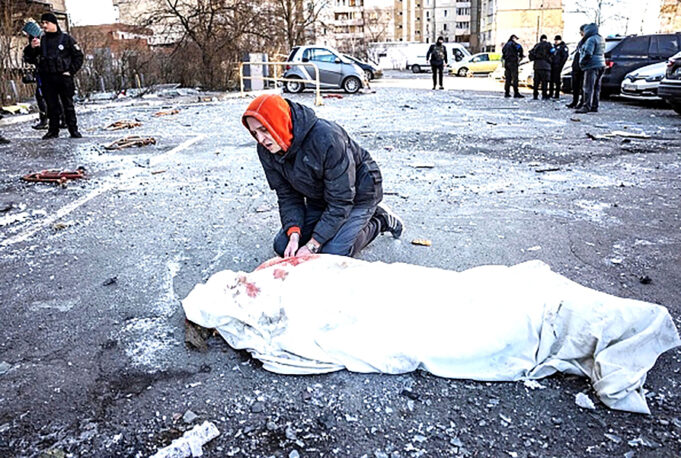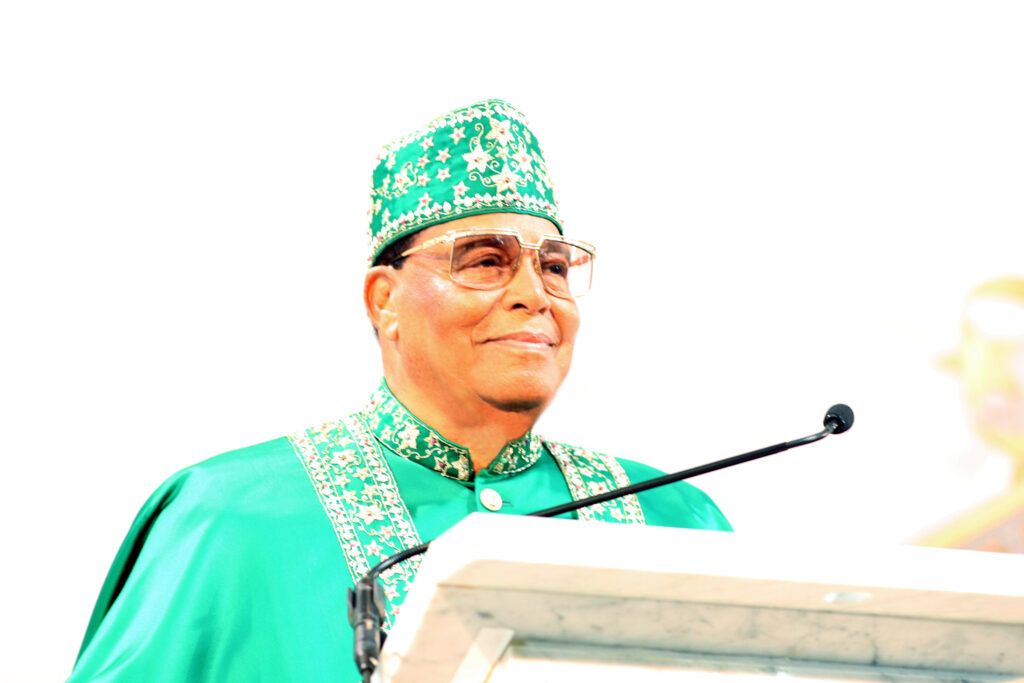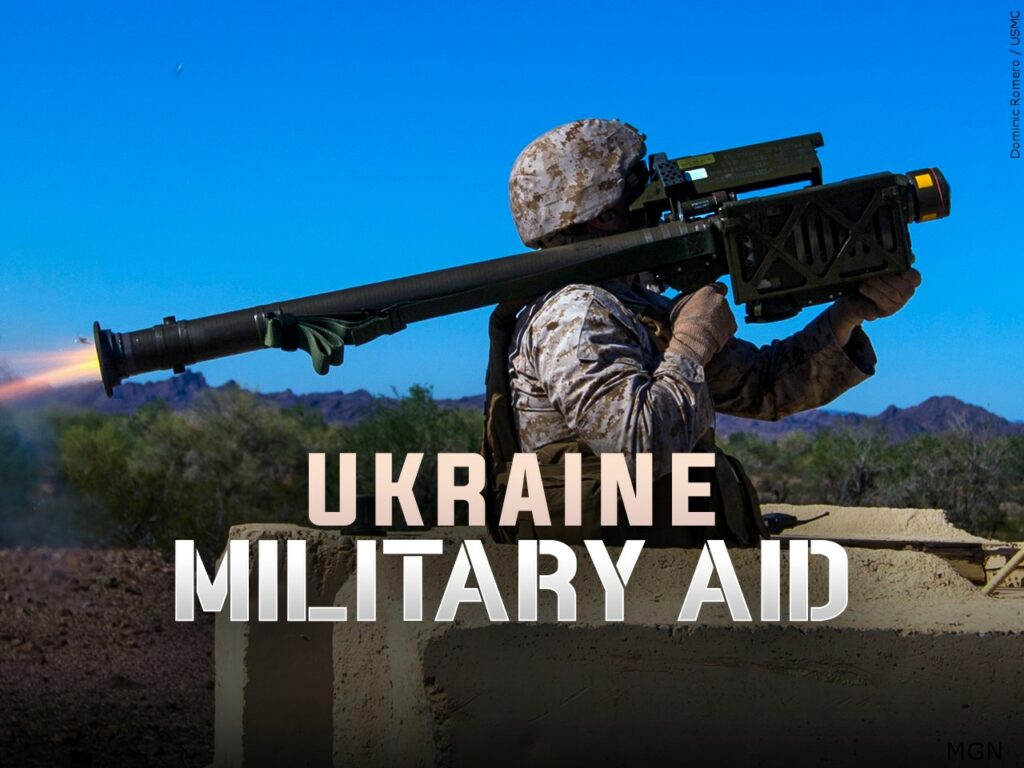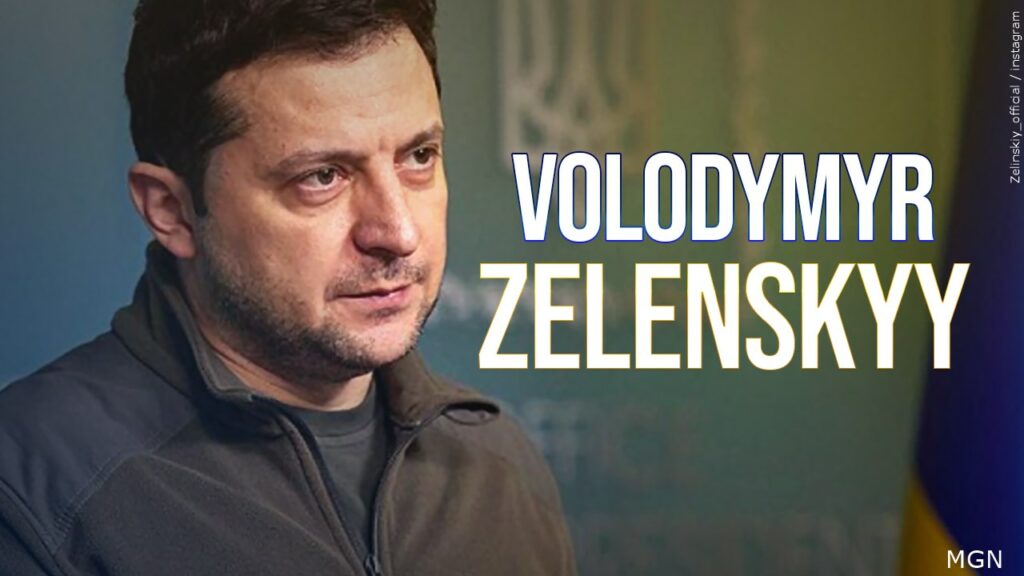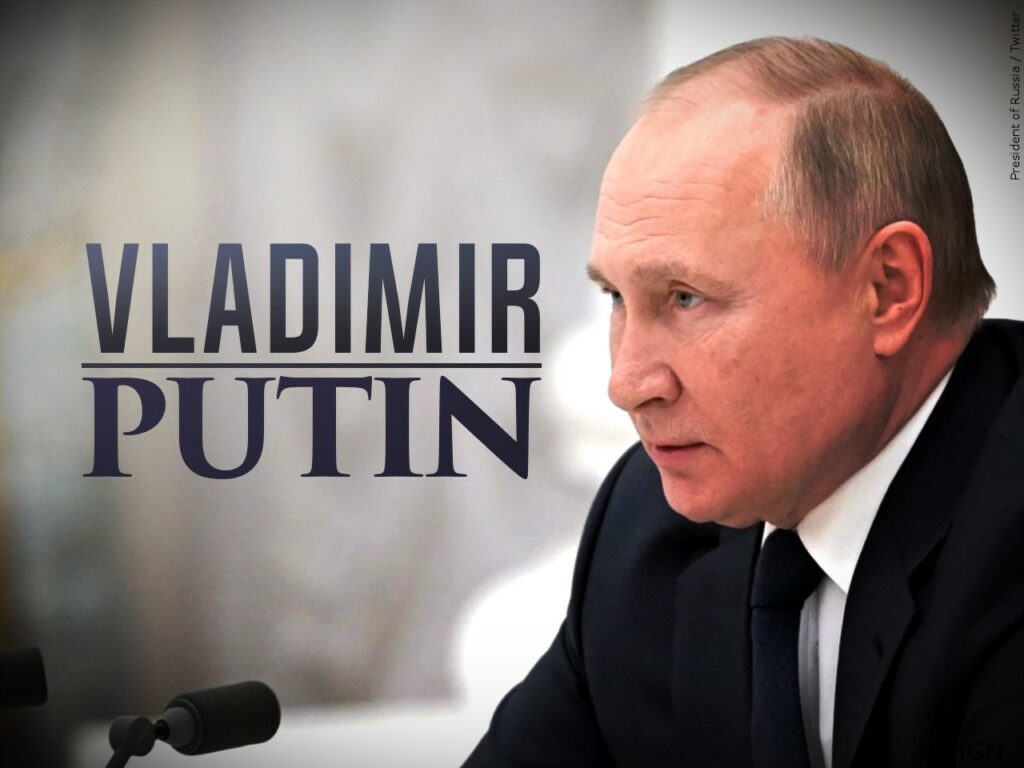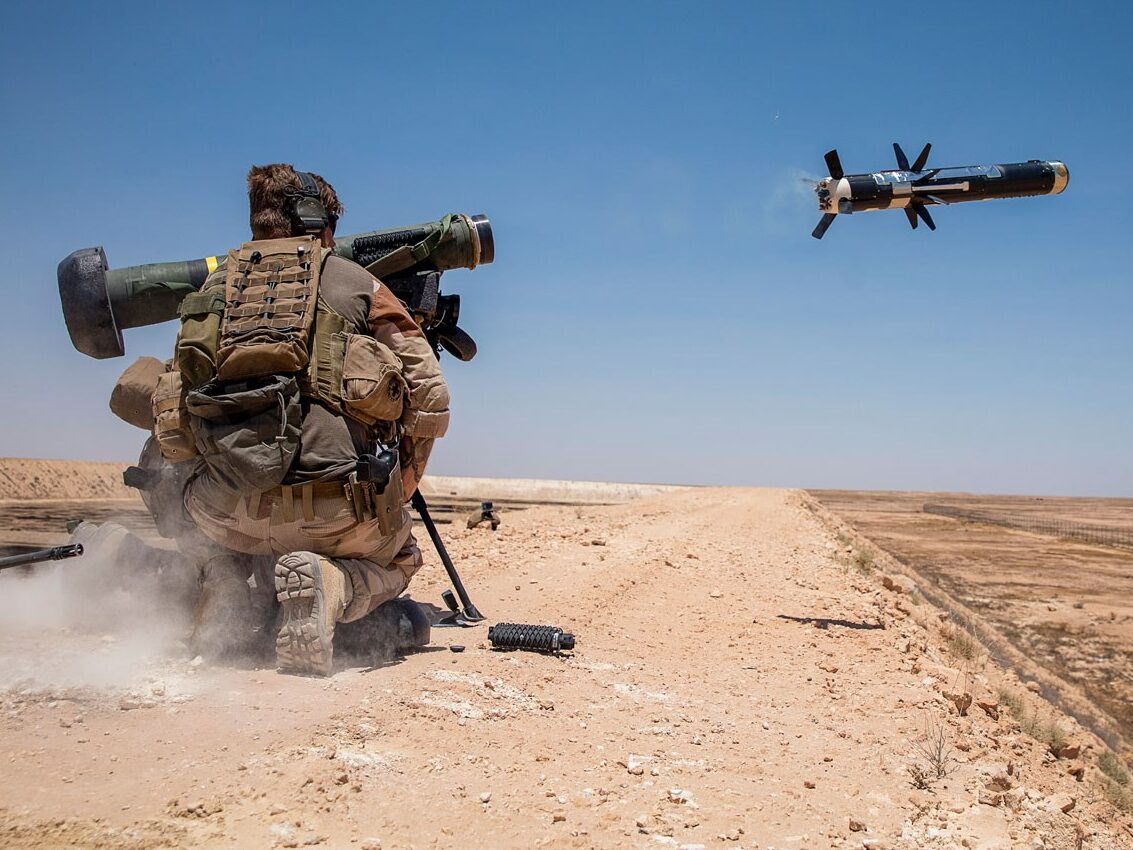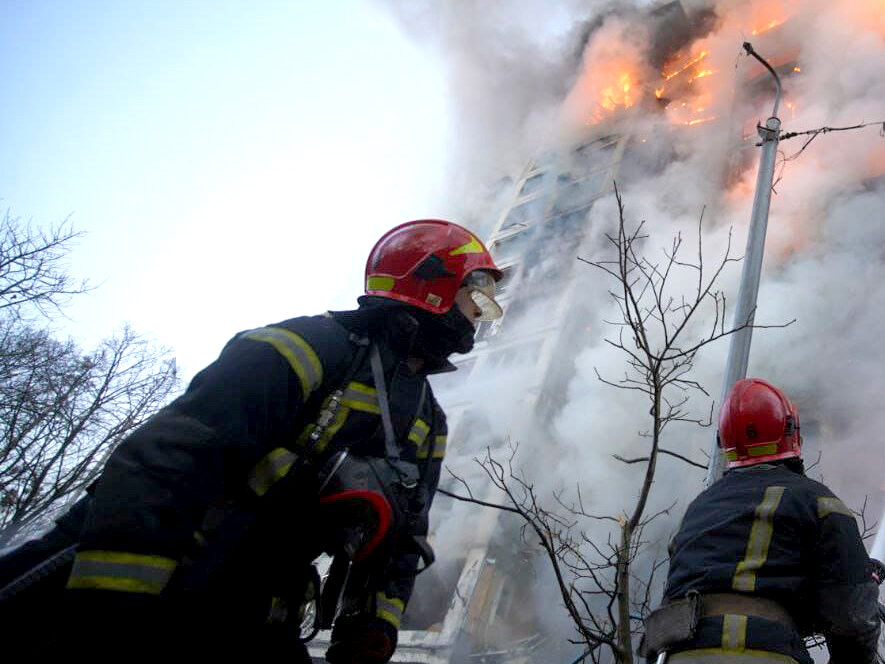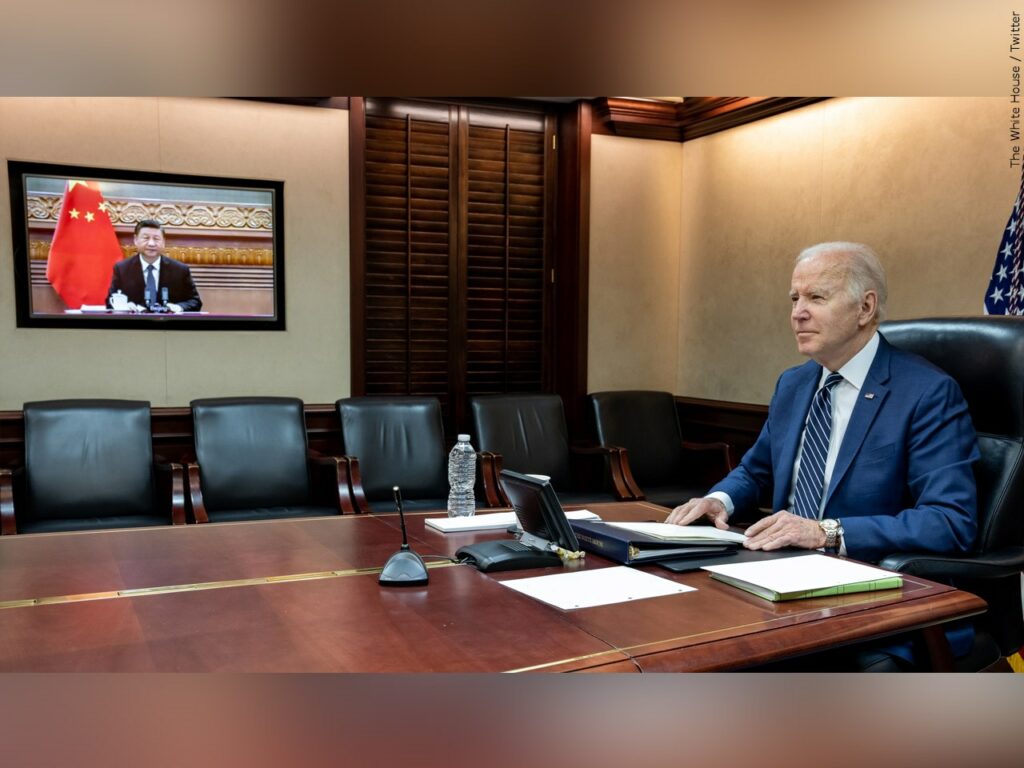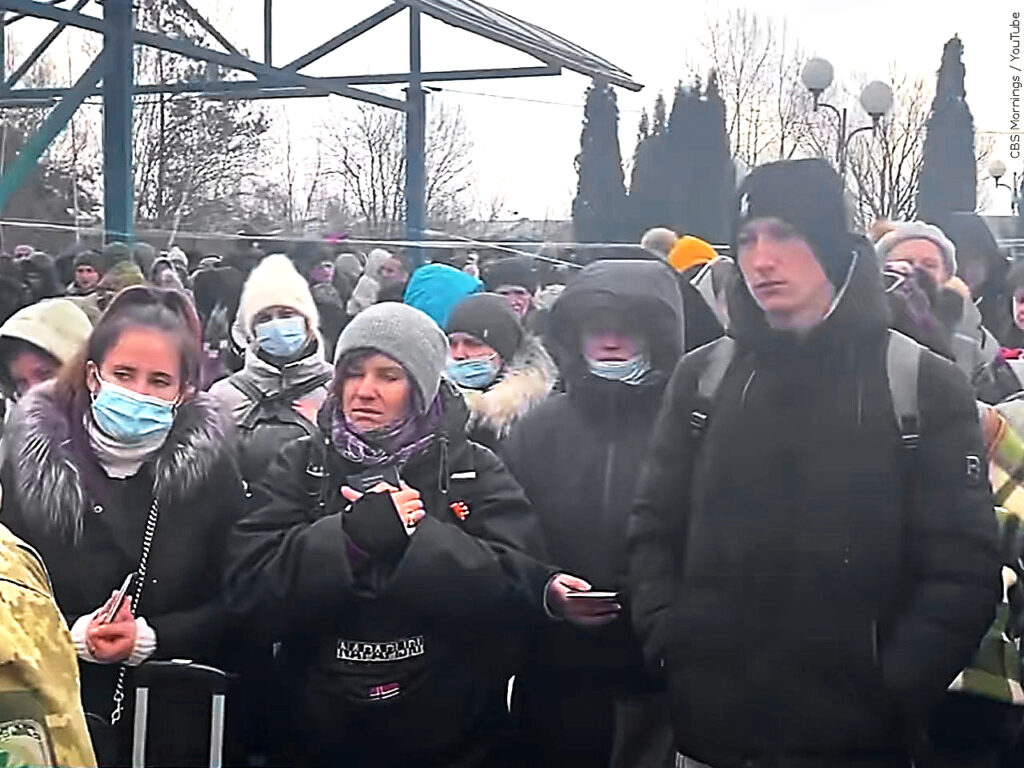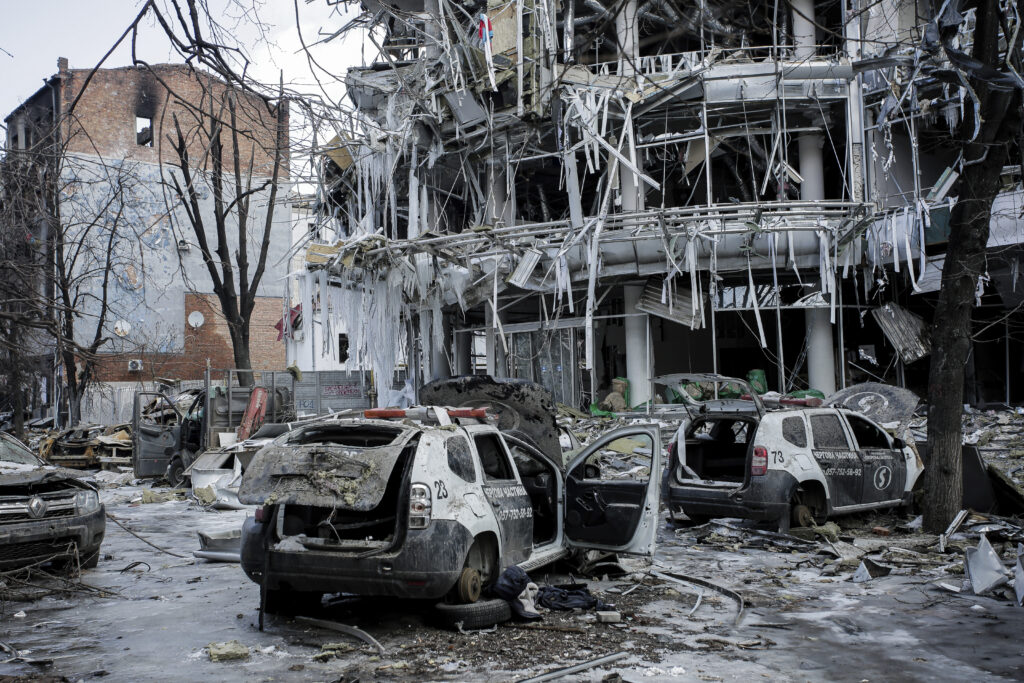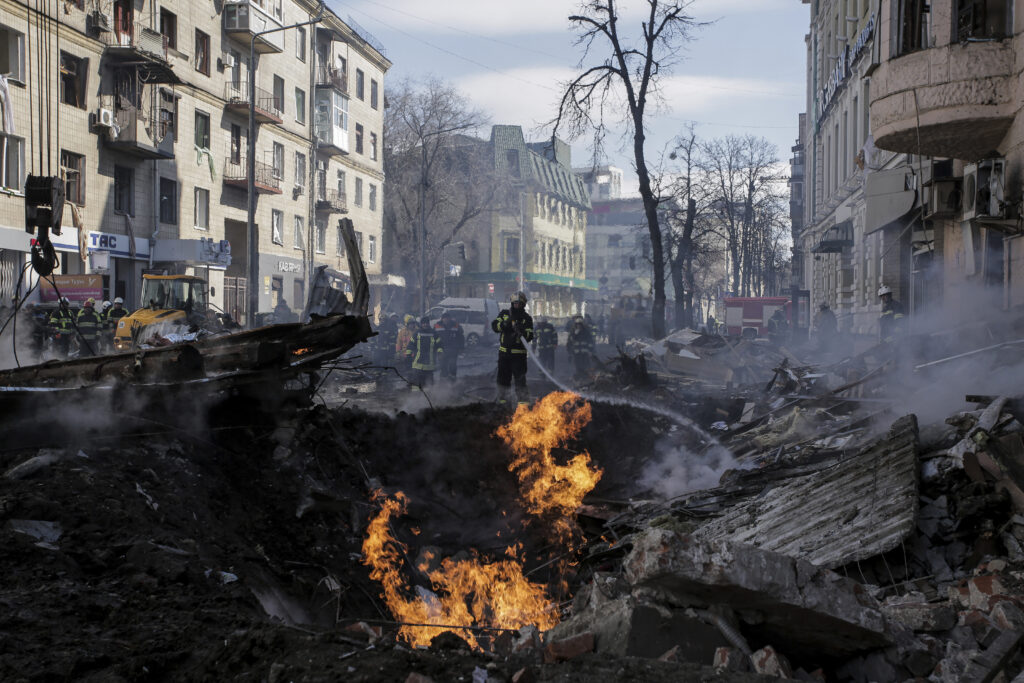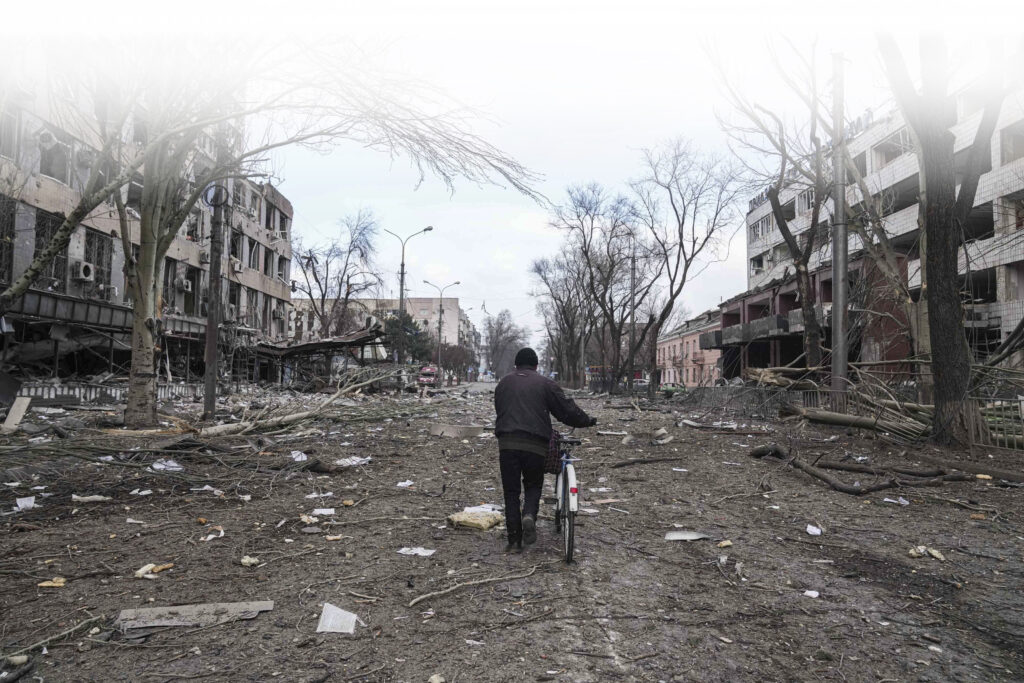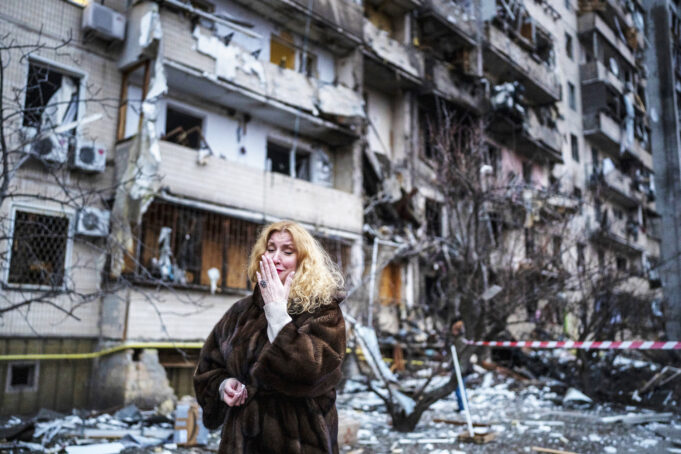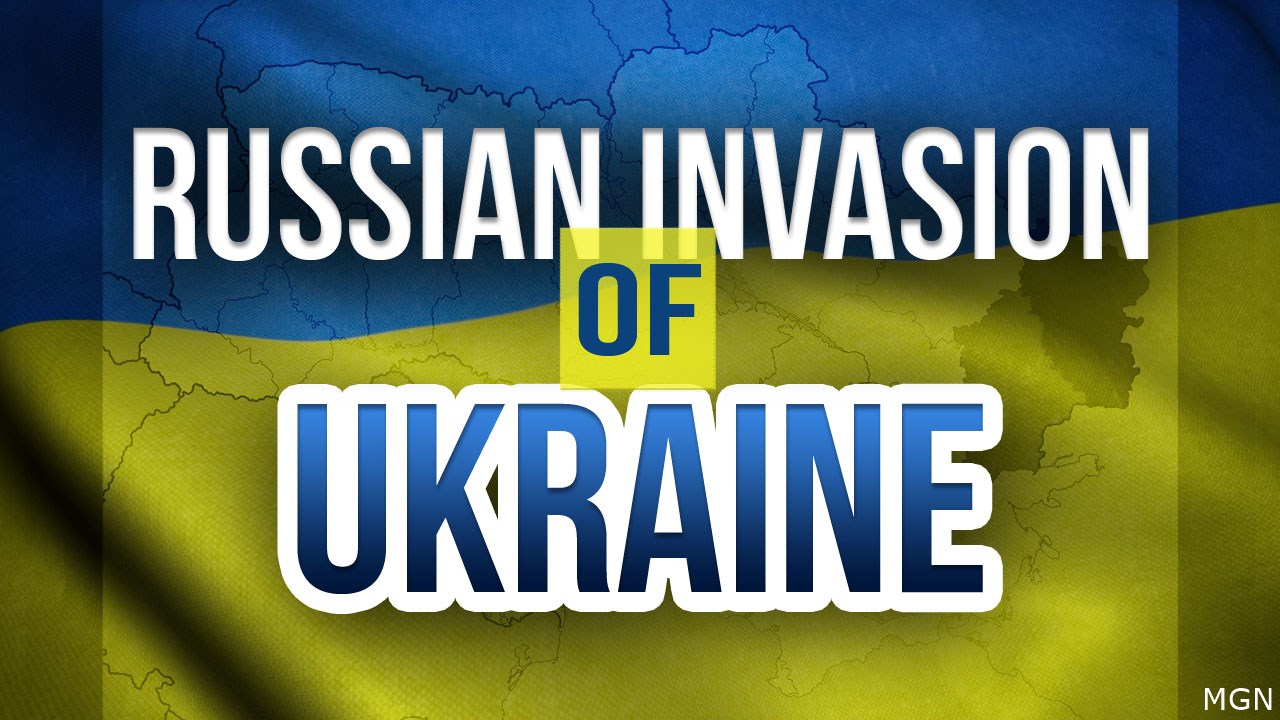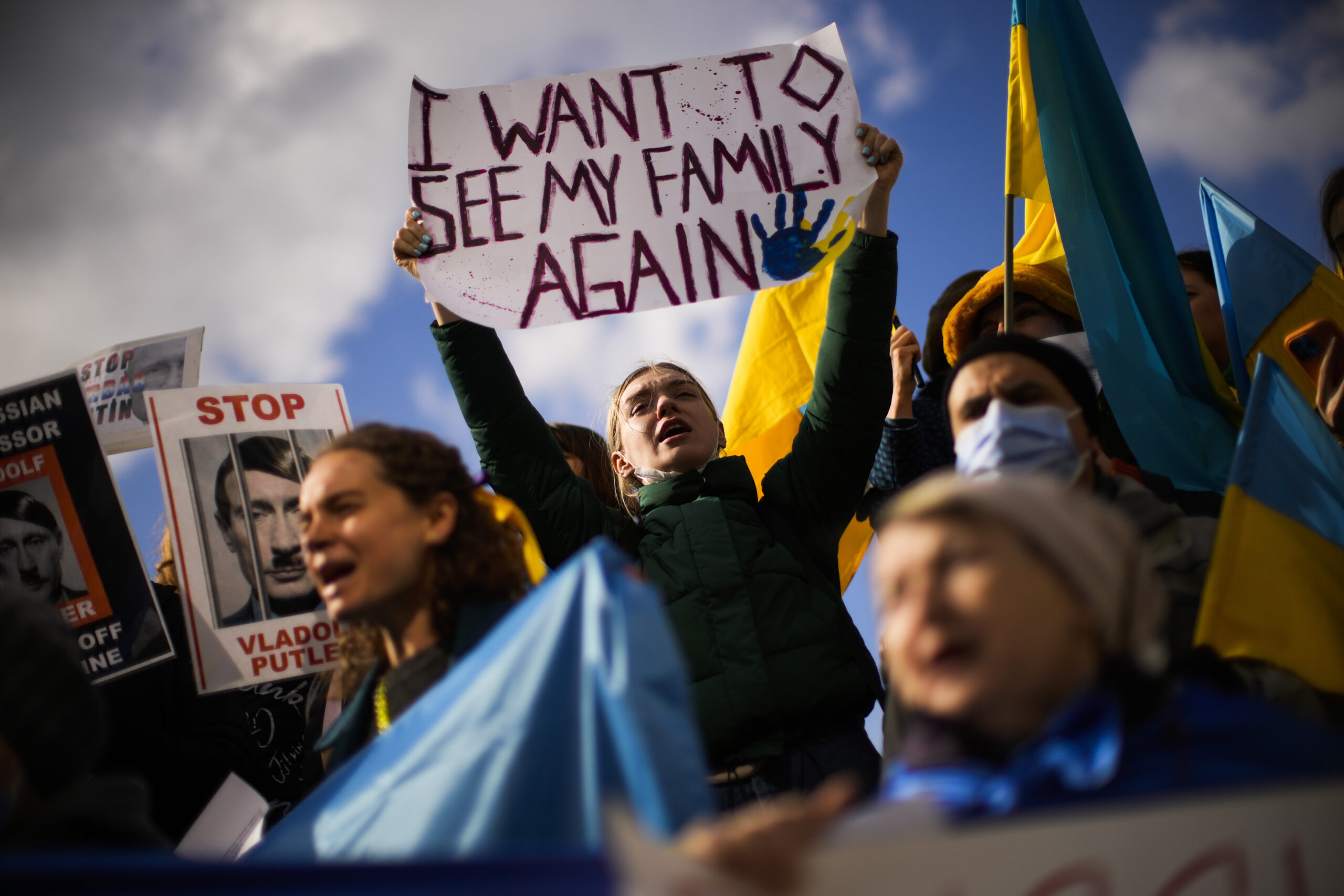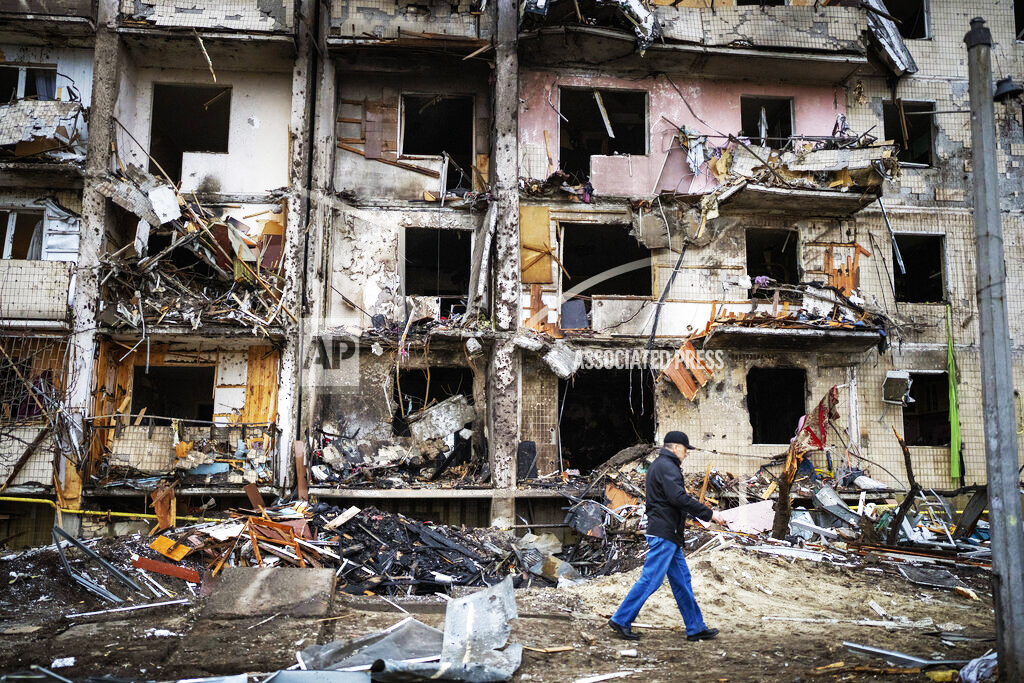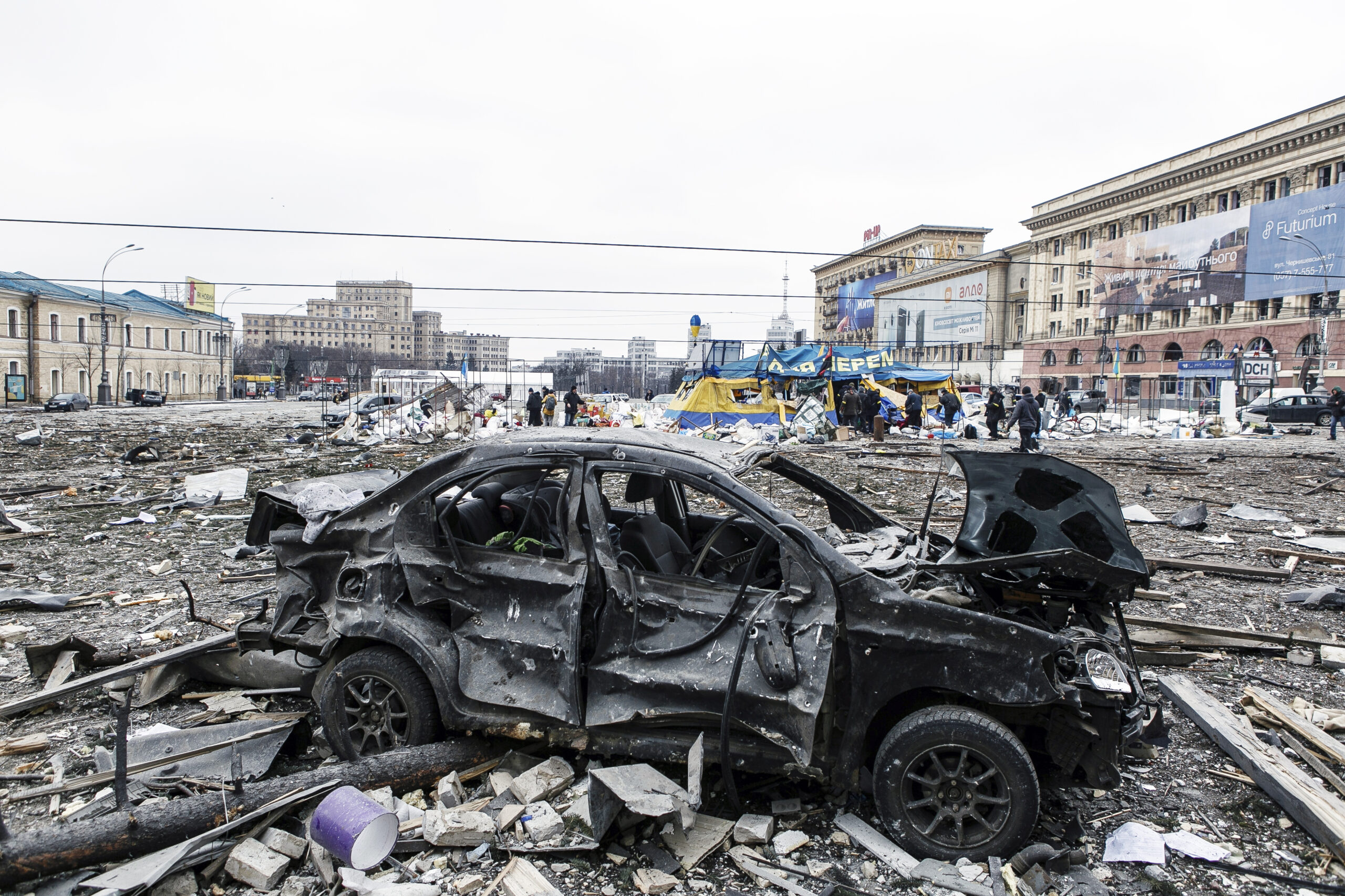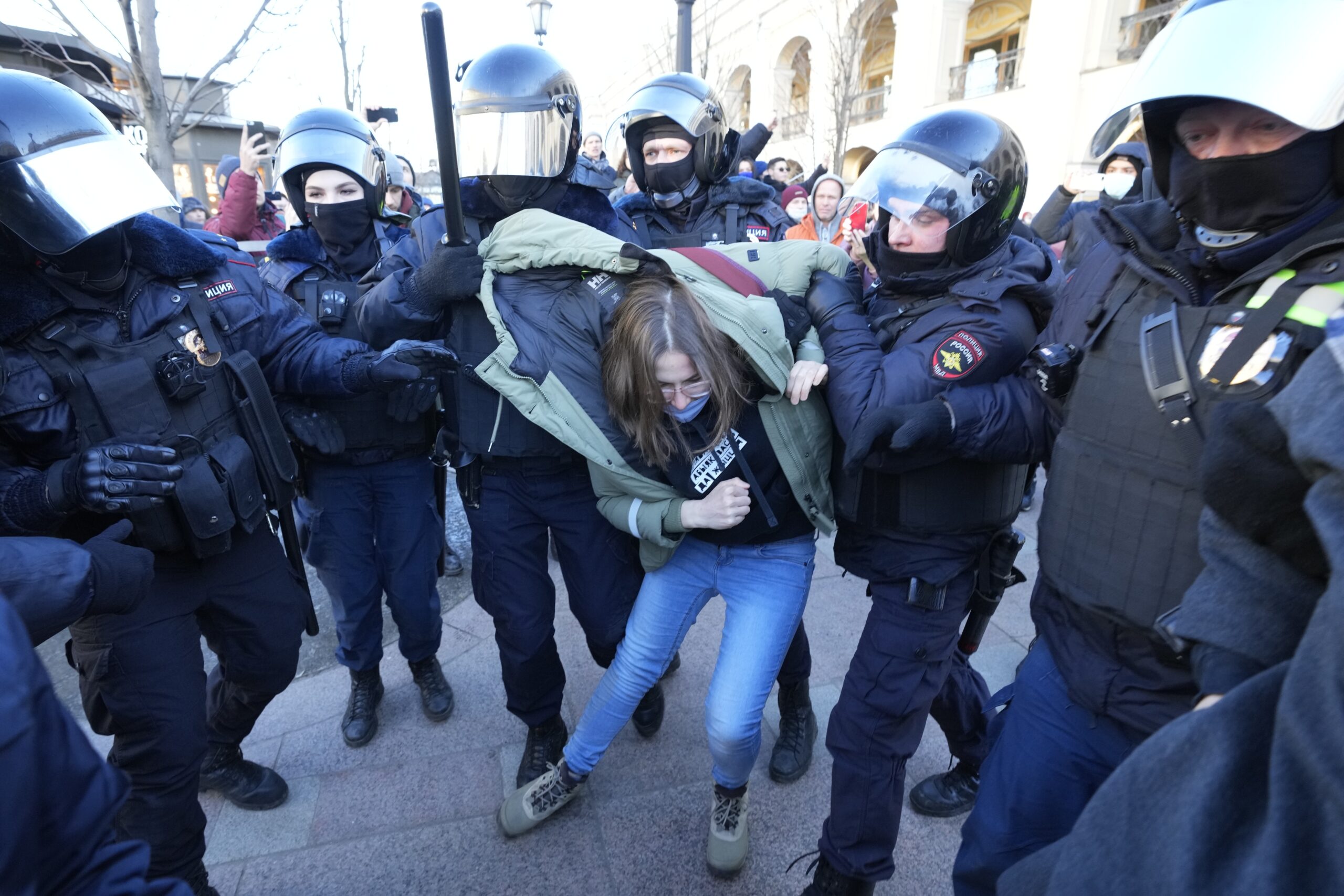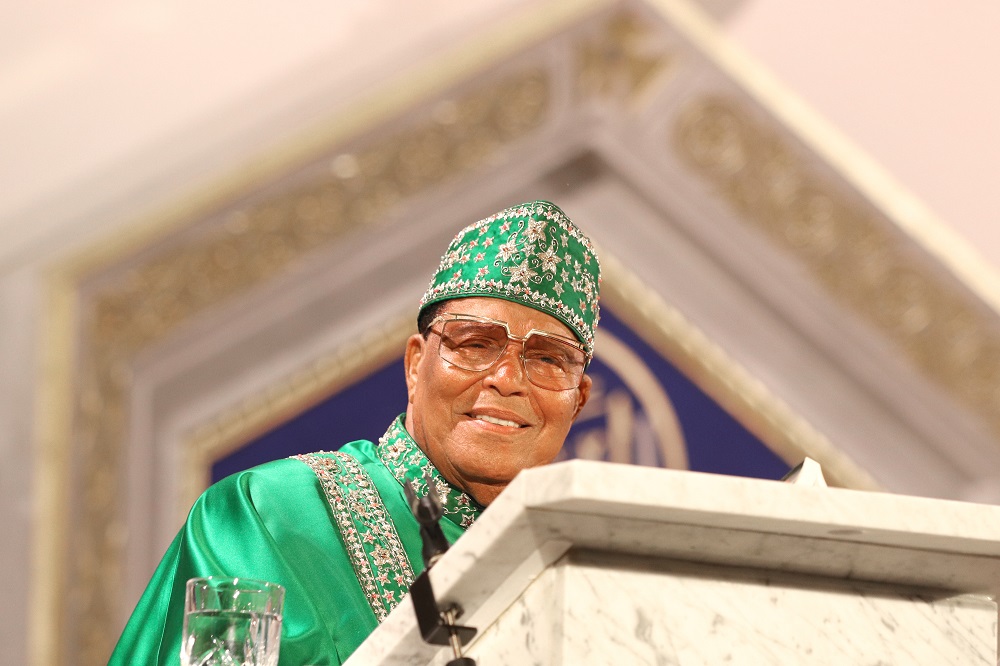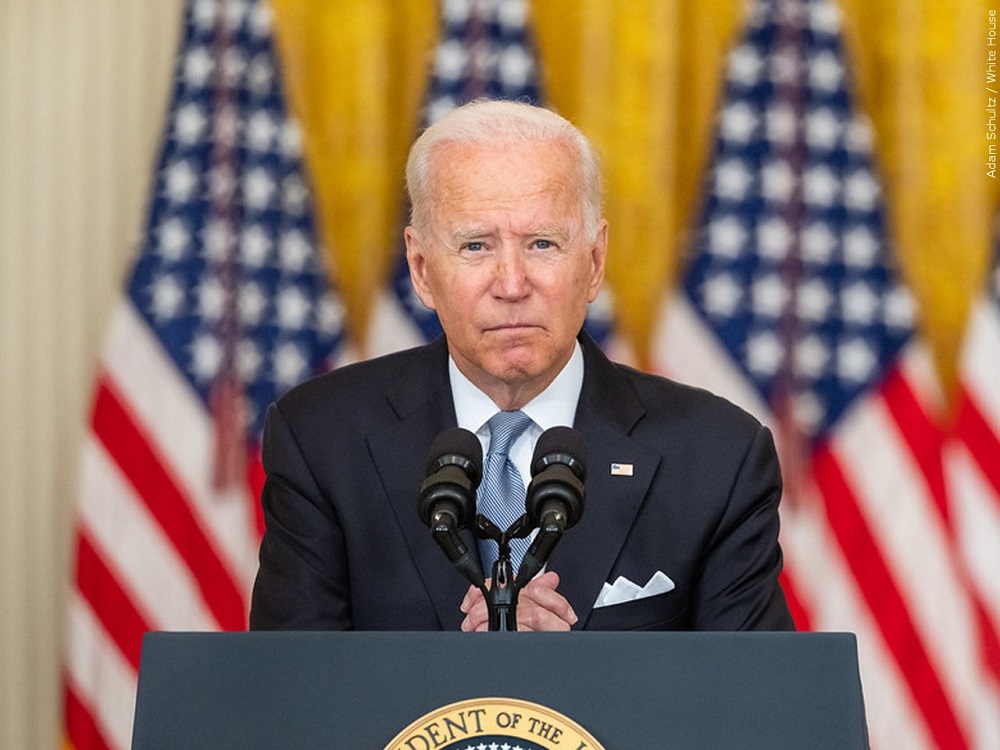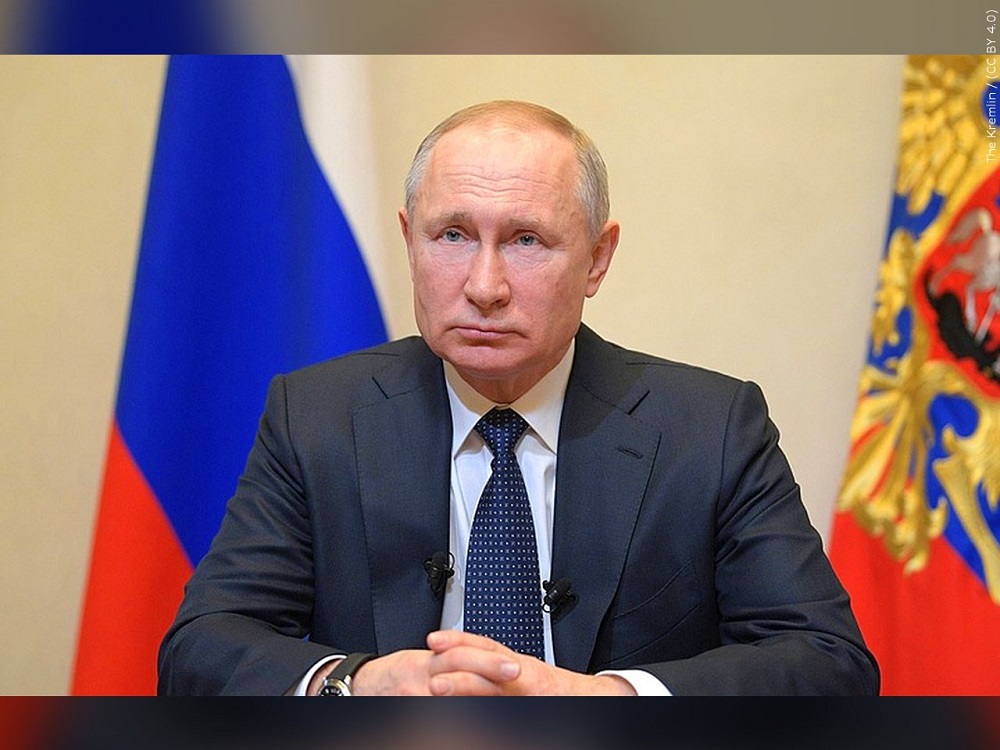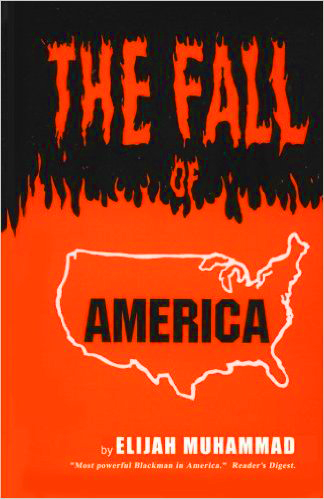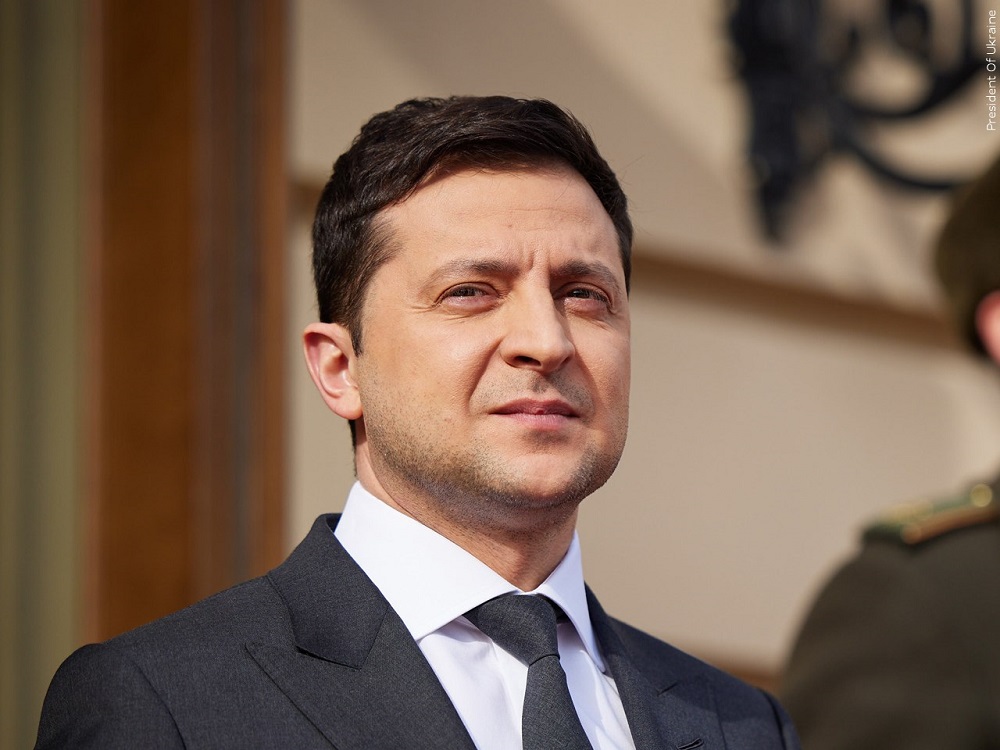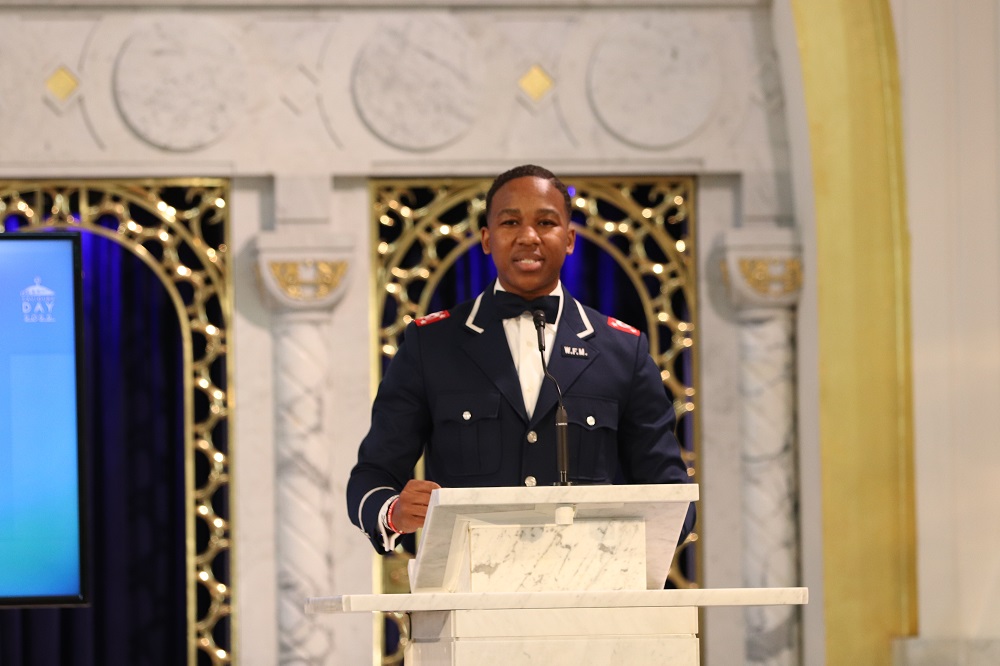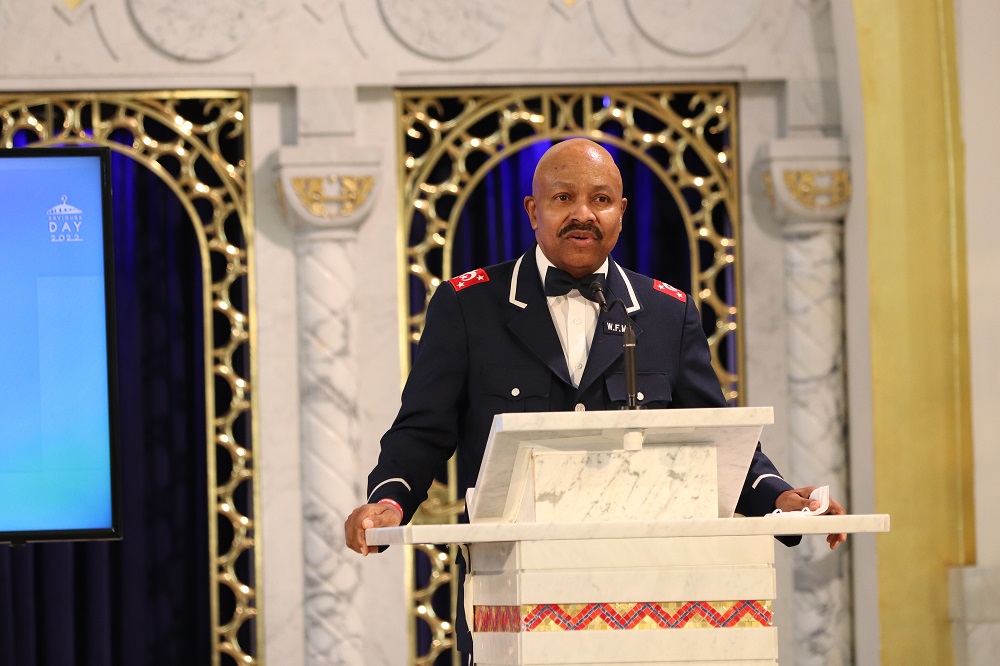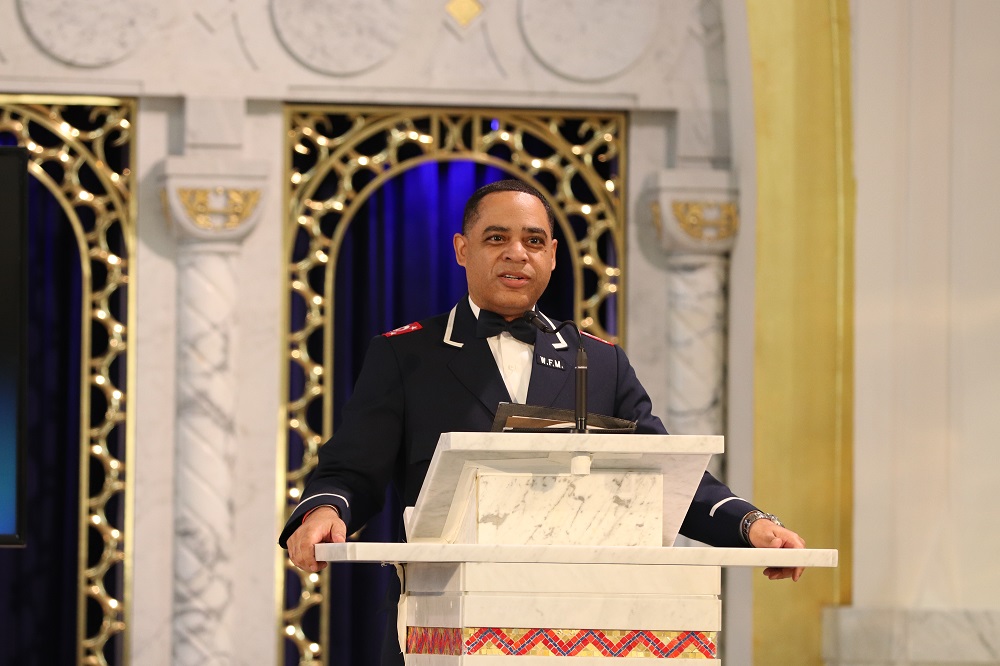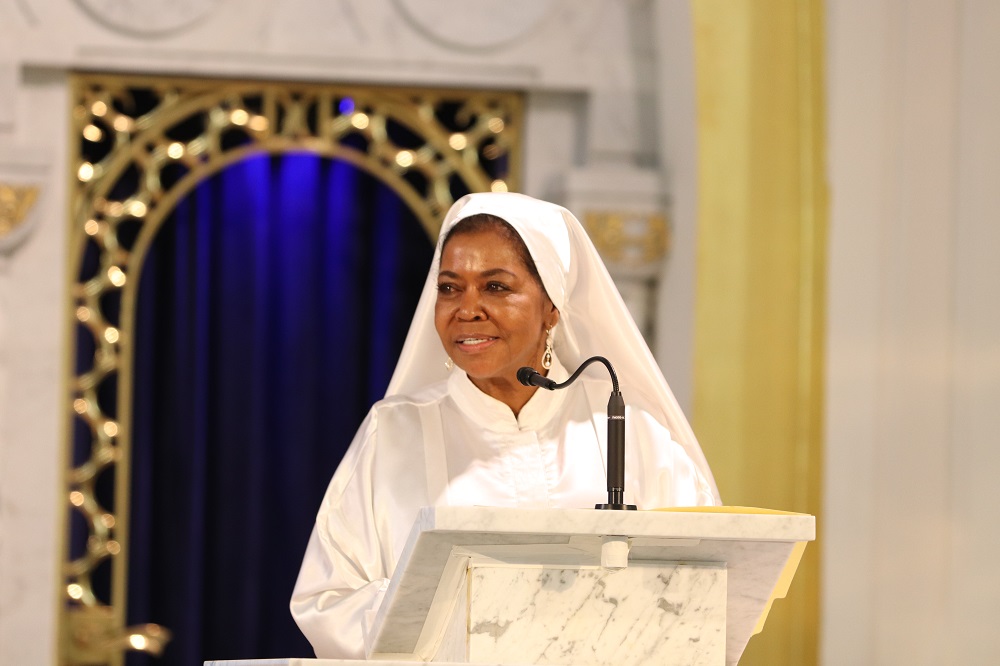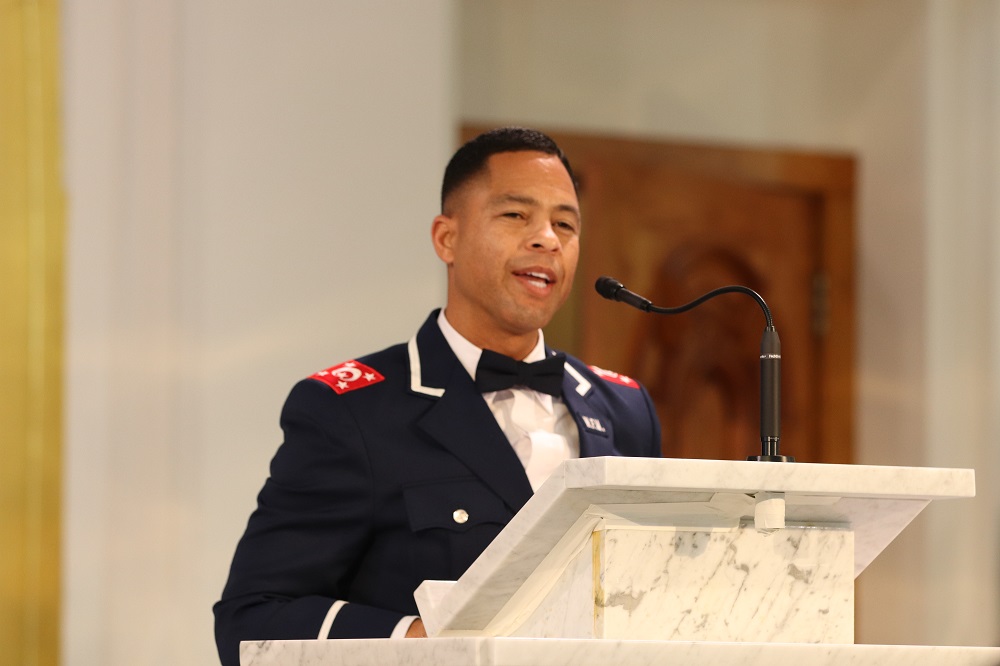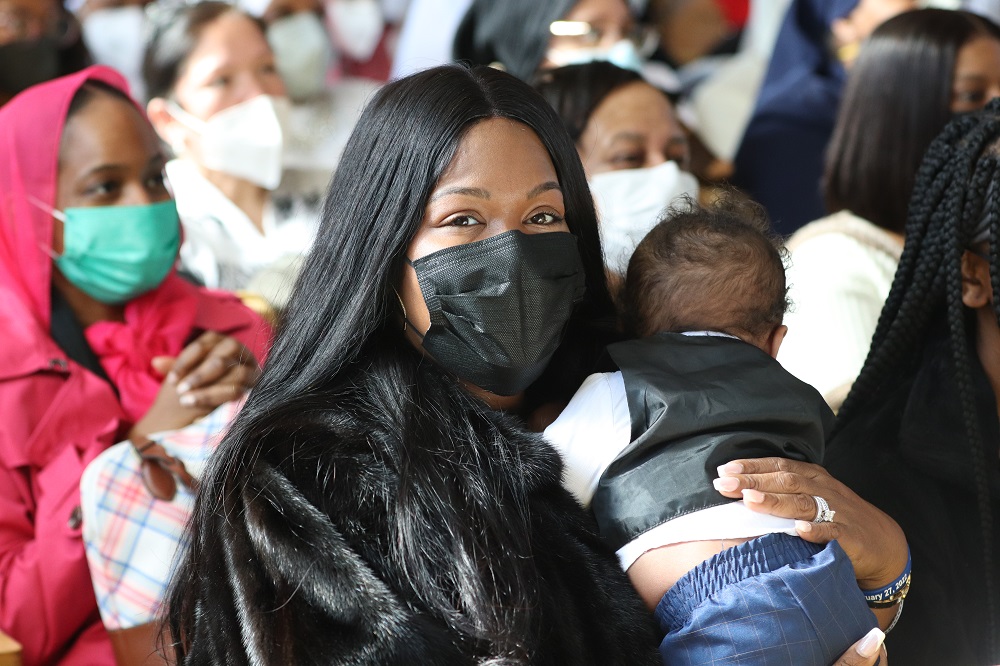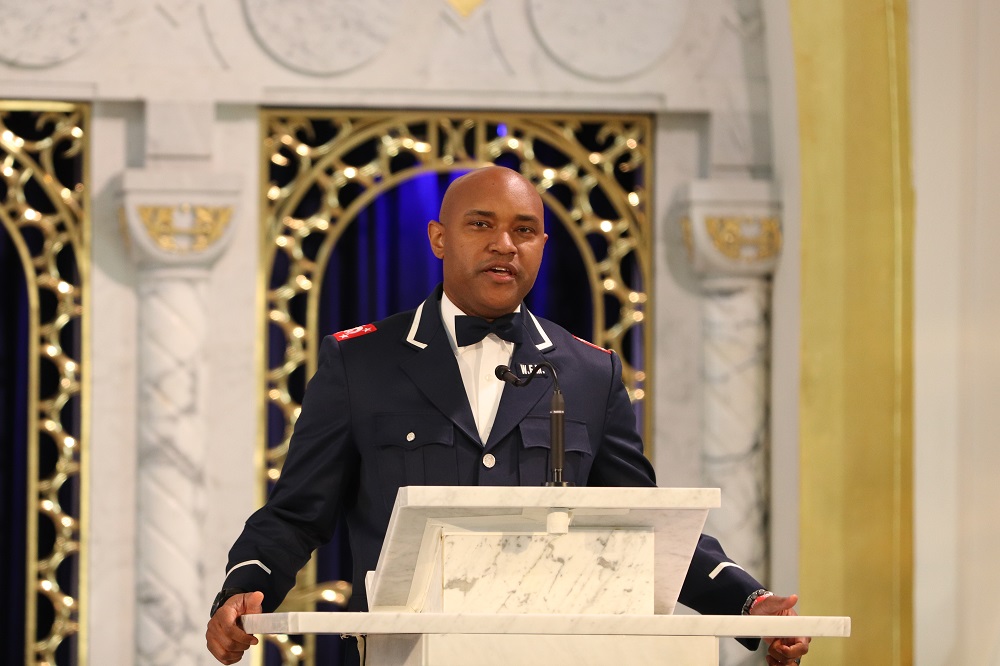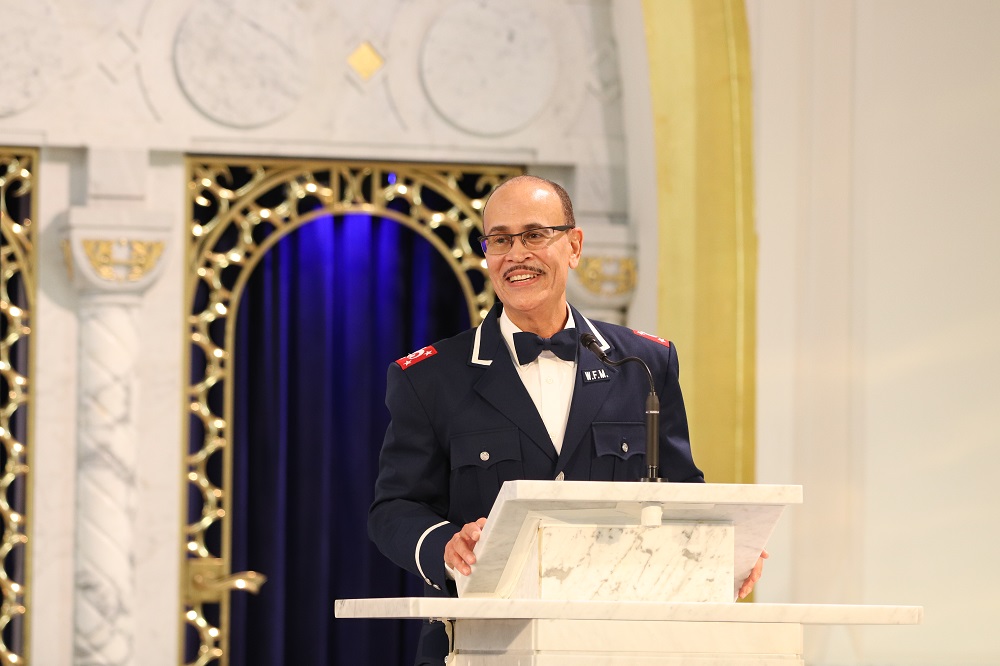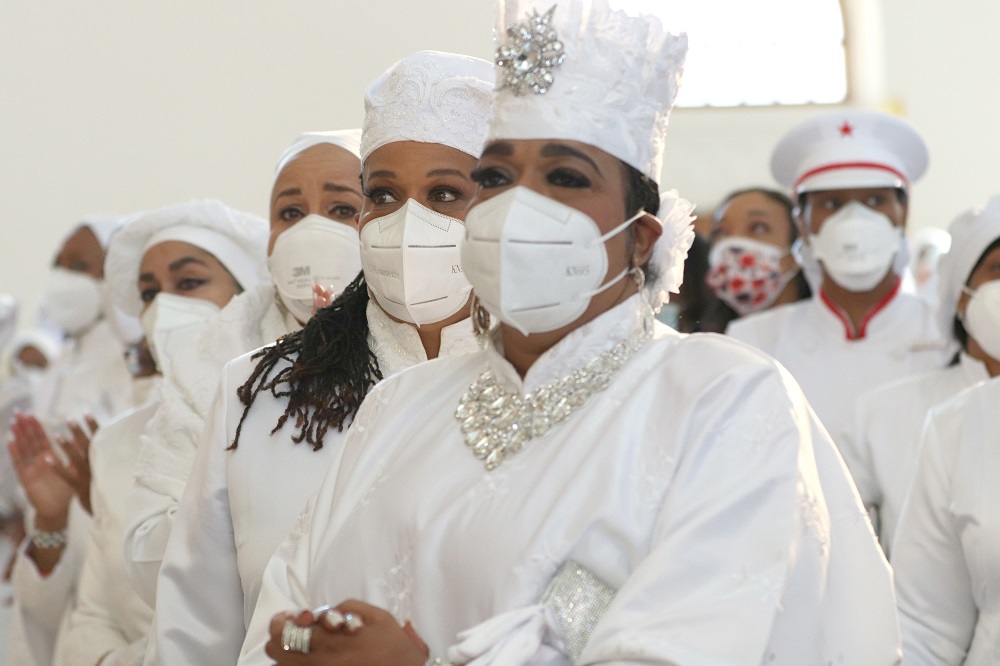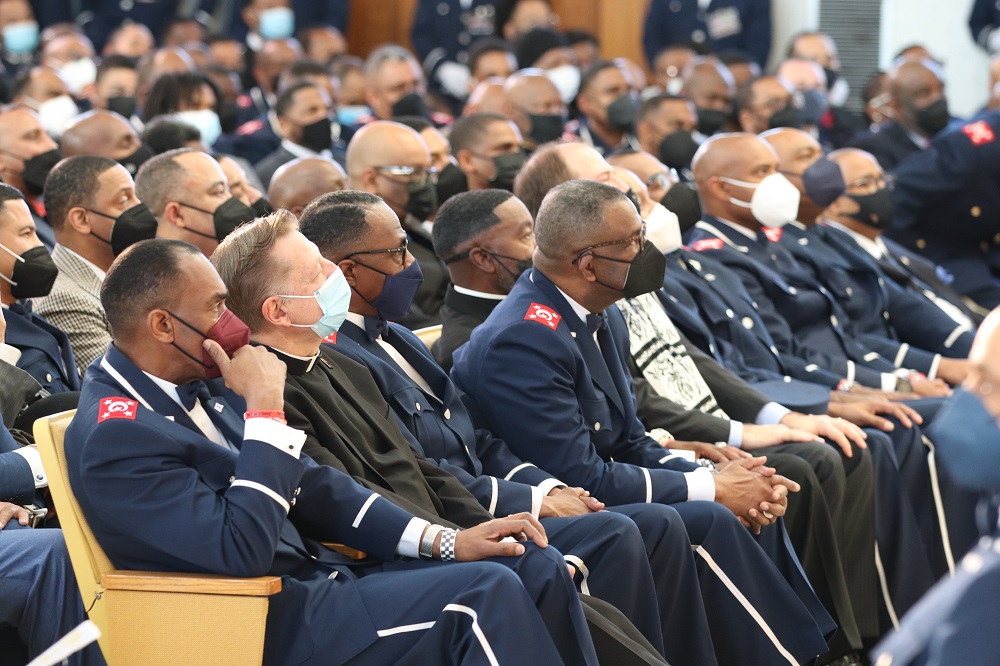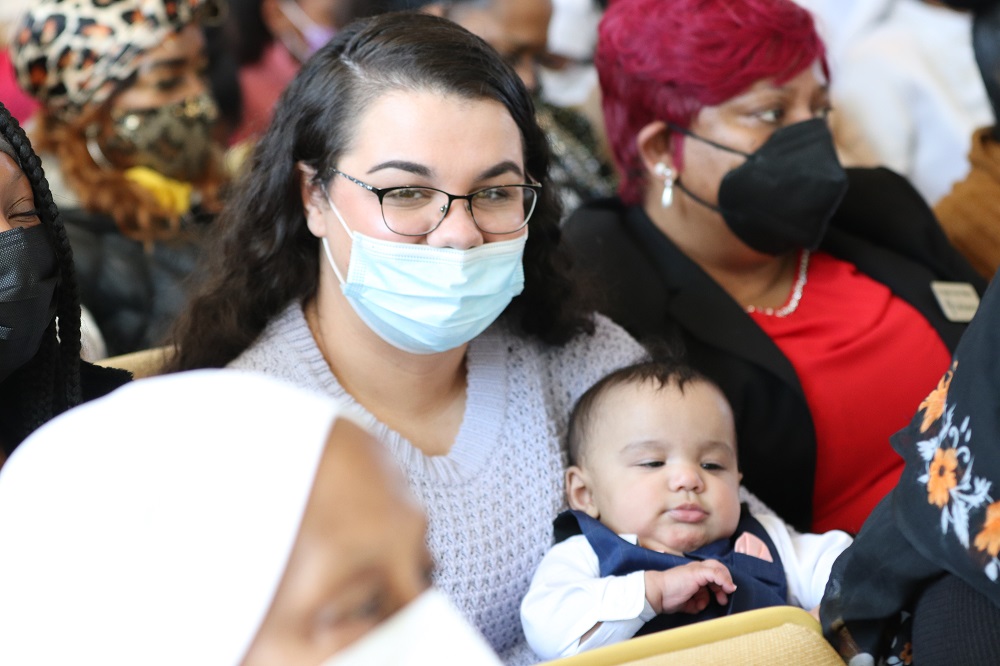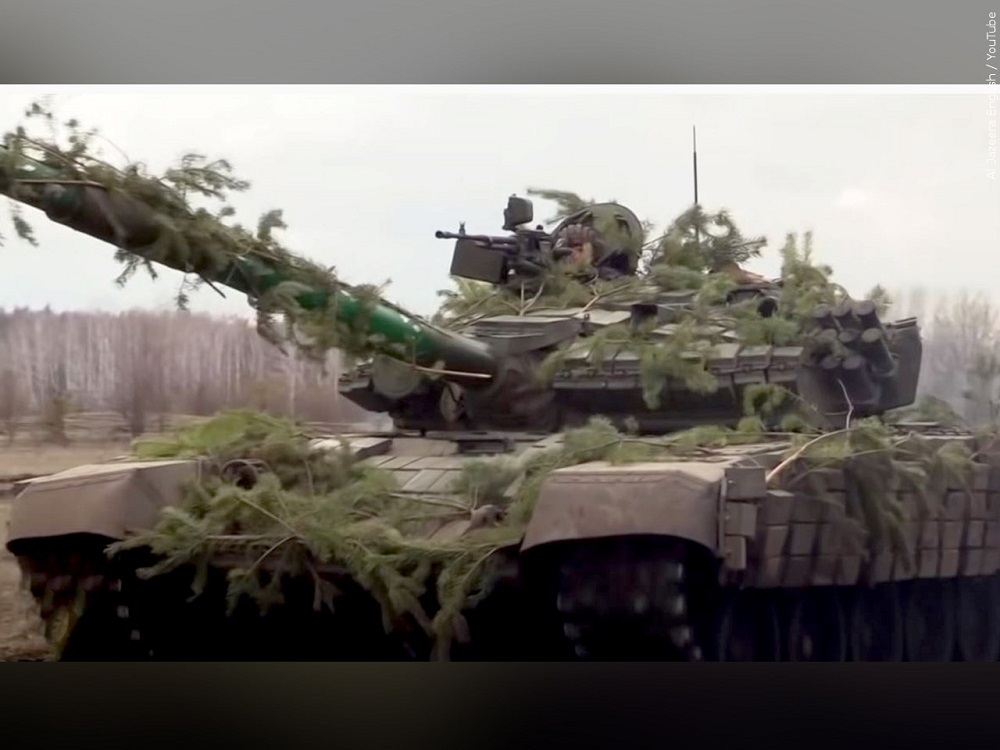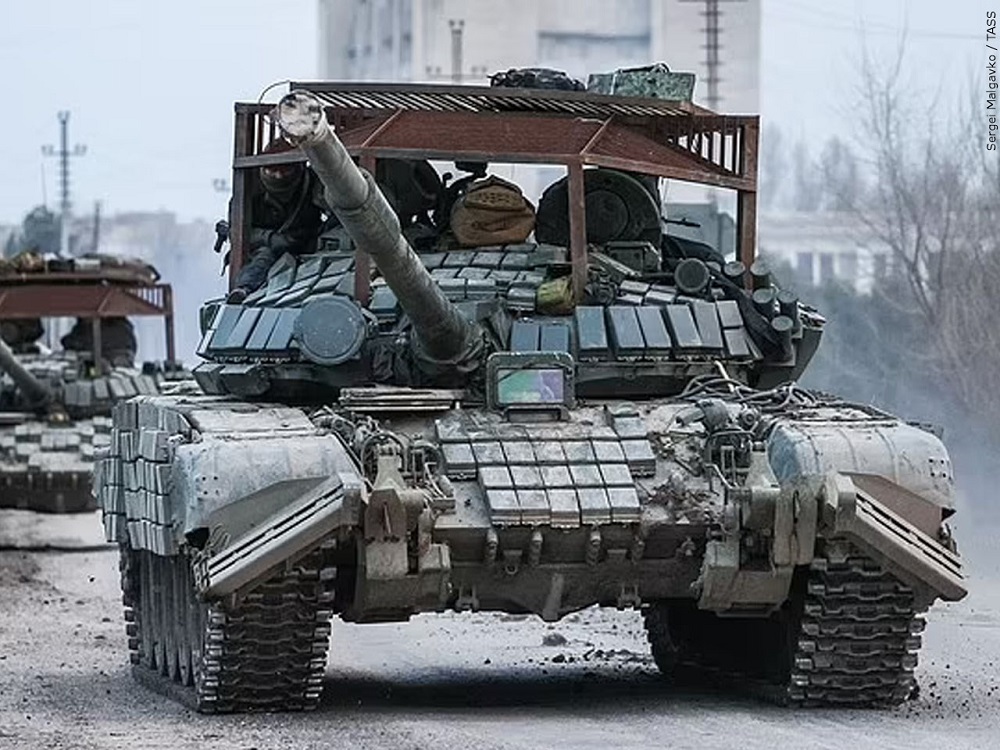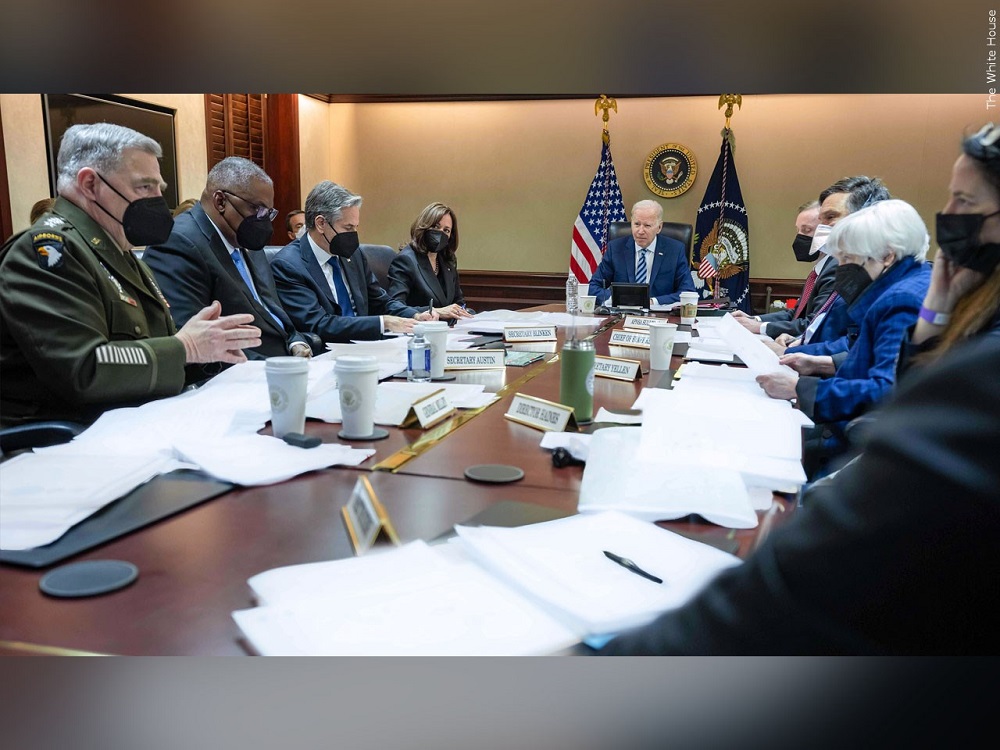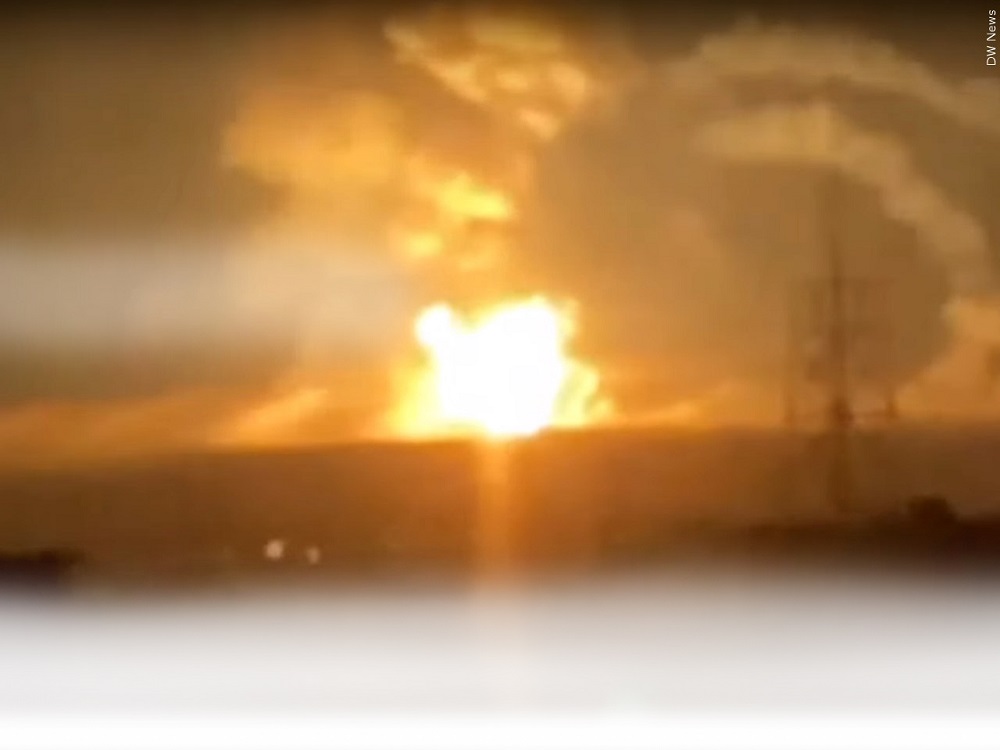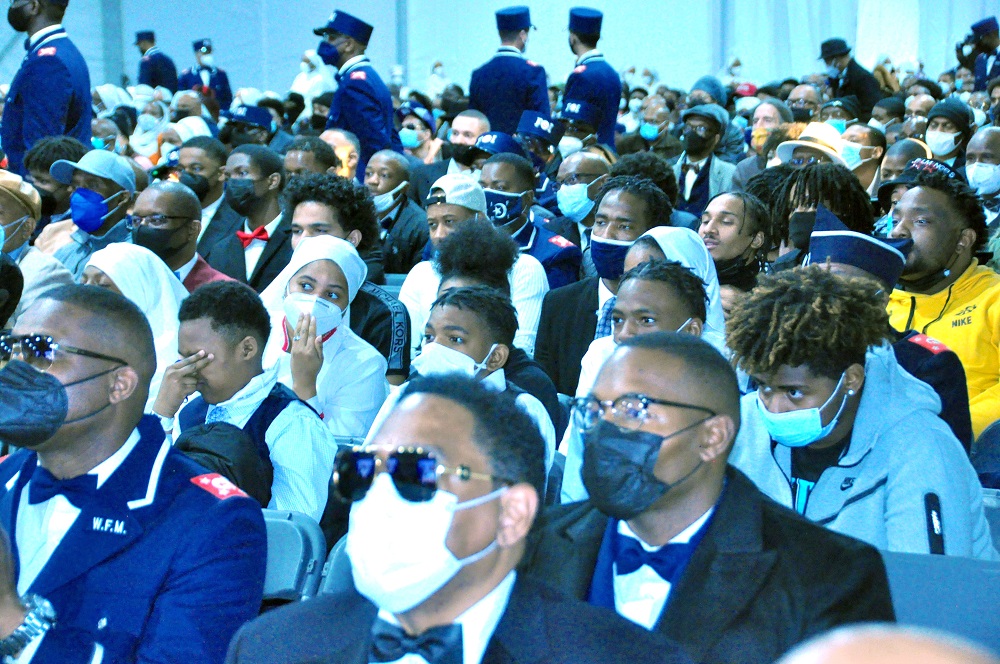‘Wars take on a life of their own’ With Biden’s words, Ukraine conflict, meetings of Western leaders, trouble keeps brewing; growing tensions pit nations against nations
By Brian E. Muhammad, Staff Writer- March 29, 2022
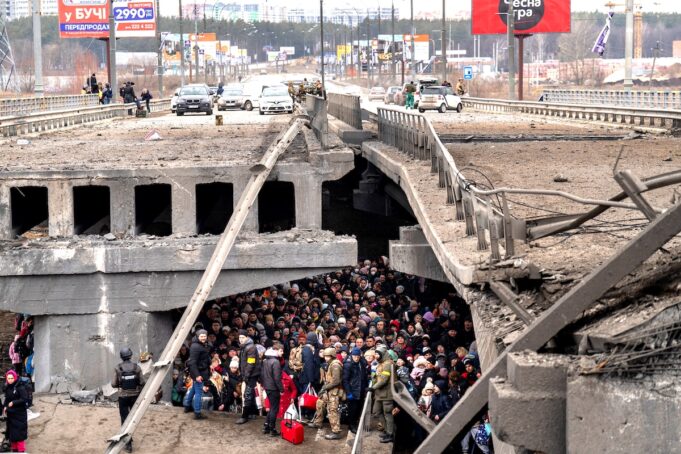
‘Wars take on a life of their own’
With Biden’s words, Ukraine conflict, meetings of Western leaders, trouble keeps brewing; growing tensions pit nations against nations
“Their head is going to and fro to the nations of the earth to find a way of peace between the heads of the nations. “A Great Time! A Troublesome Time! A Terrible Time!”
-The Fall of America
Volatile off-the-cuff words from President Joe Biden and Russian missiles striking an hour away from Poland, which is NATO territory and the place where the U.S. commander-in-chief gave his major speech, punctuated recent major developments in Europe’s worst military conflict since WWII.
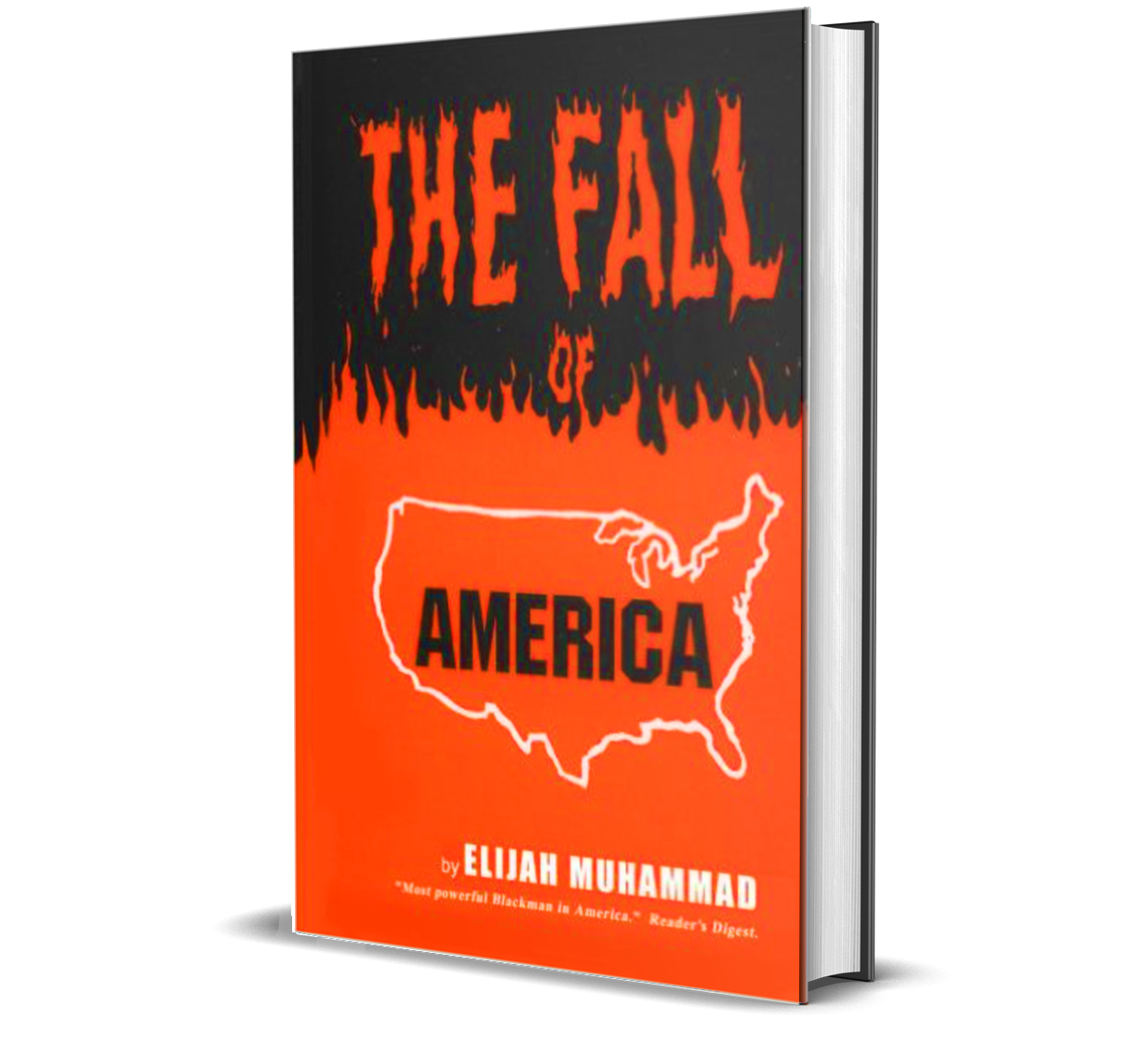
In Warsaw, Poland’s capital, at the conclusion of a four-day trip where he met with Western leaders over the Russia-Ukraine war, President Biden promised continued support for the country invaded at the order of Vladimir Putin. And March 26 he made this bold declaration: “For God’s sake, this man cannot remain in power.”
The White House immediately back peddled the incendiary comment saying regime change in Russia and overthrowing Mr. Putin was not on the table. However, the statement was incredibly telling given the past history of U.S. leaders deciding a foreign leader they didn’t like had to be ousted. Such language was aimed at the late leaders Sadaam Hussein of Iraq, Muammar Gadhafi of Libya, Salvadore Allende of Chile, who were killed in U.S.-supported coups, and Fidel Castro of Cuba who survived numerous failed U.S. assassination attempts.
Two days later, the U.S. president denied calling for regime change but insisted that it was moral condemnation of Mr. Putin. And, Mr. Biden, added, he would not refrain from such condemnation and no one thought he meant regime change. Others offered a different view.
“Biden’s statement was dangerous, precisely because it was poorly thought through and emotional and was something that could trigger an even more egregious action by the Russians at a time when there needs to be diplomatic overtures to bring about peace,” said international affairs analyst Bill Fletcher, Jr., an author and past president of TransAfrica Forum.
The rhetoric is indicative of worsening animosity between Mr. Putin and the West led by Mr. Biden, who has called the Russian leader a “war criminal,” a “butcher,” a “pure thug” and a “murderous dictator.” Saying he should be removed from power could be taken as a logical next step.
“That’s not for Biden to decide,” Kremlin spokesman Dmitry Peskov told Reuters. “The president of Russia is elected by Russians.”
He told Russia’s RBC TV that Mr. Biden was apparently “the victim of many misconceptions” and doesn’t understand the world is not centered on America and parts of Europe.
French President Emmanuel Macron who has ongoing talks with Russia told French TV on March 27 the goal is to end the war. “I think we must keep to the facts and do everything to not escalate things. I wouldn’t use this type of wording, because I continue to hold discussion with President Putin. … The objective is to obtain a ceasefire and complete withdrawal of troops. If that is what we want to do, we should not escalate things, neither with words nor actions,” he said.
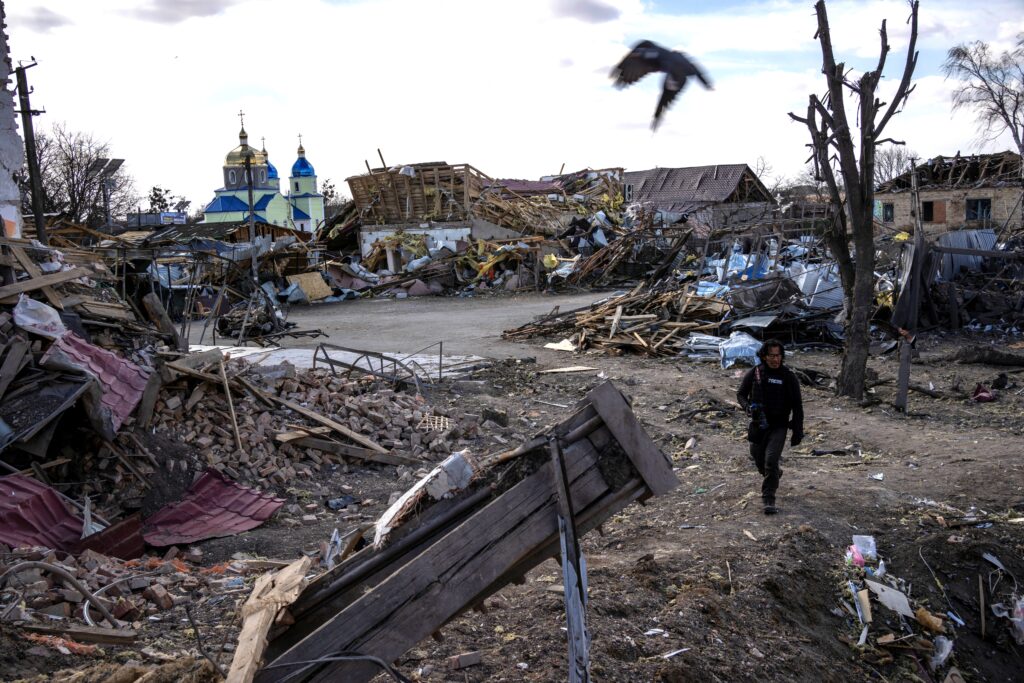
British political commentator George Galloway called the comments “effectively a declaration of war” by one nuclear-armed superpower on another. “Joe Biden said the quiet part out loud; he stated publicly what is held privately as the war aim of NATO,” he said on his “The Mother of All Talkshows with George Galloway” podcast. “Never since WW2 has such a grave step been taken. We are now in utterly uncharted and terrifyingly (dangerous) waters,” he said.
Ro Khanna, U.S. representative for California’s 17th Congressional District and member of the House Armed Services Committee, added, “The United States policy is not of regime change. There’s no support in the Congress, certainly among Democrats, for a policy of regime change. Many of us have been opposed to regime change policy in this country over the last 20 years.
I think President Biden was speaking about the extraordinary frustrations with Putin’s brutal campaign of killing and targeting women and children, and he was speaking from the heart. But I’m glad that the White House has explicitly clarified that the goal is not regime change. And ultimately, we need a negotiated end to this war and a ceasefire,” said the U.S. congressman in an interview with Amy Goodman of Democracy Now broadcast March 28.
“President Biden is a seasoned statesman. He’s been around for quite a while. He should have learned to think before he speaks. I think that his comment was reckless and damaging,” said Andrew Bacevich, president and co-founder of the Quincy Institute for Responsible Statecraft, in the same Democracy Now interview.
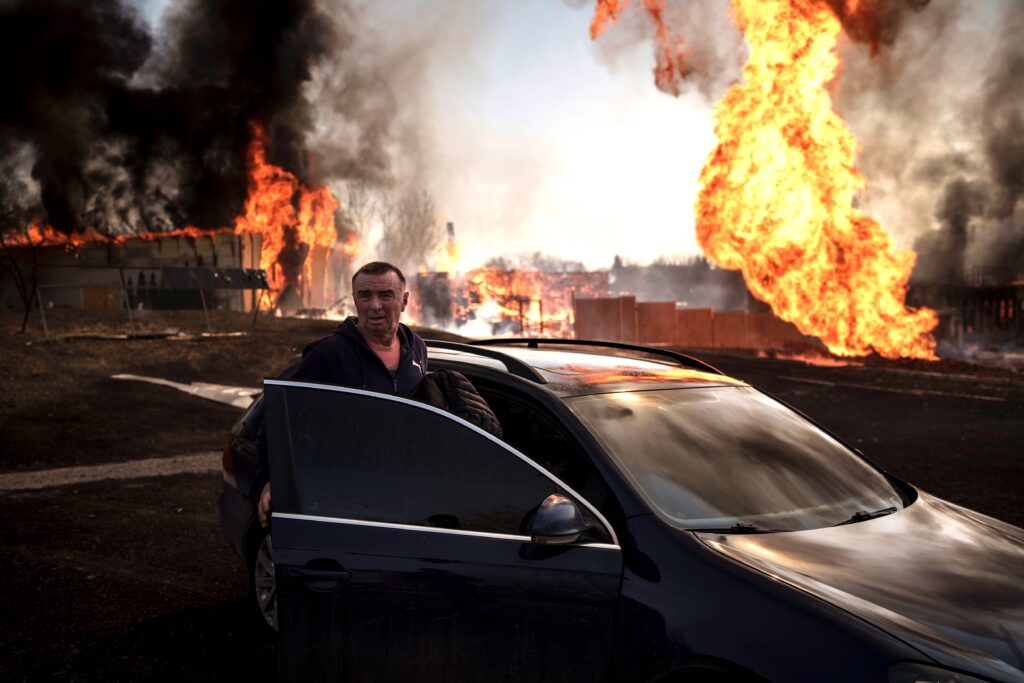
“We have absolutely no business inserting U.S. views into what the war’s end should look like,” he added. “There is no question about who is responsible for this catastrophe. There’s no question about who’s in the right. … You know, there is this notion, again, carried over from probably the end of World War II, that the president of the United States functions as some kind of a global monarch. That kind of thinking is obsolete. And I think, actually, this episode illustrates the extent to which that kind of obsolete thinking complicates things. Biden should stay out and should keep his mouth shut.”
He added, “Simply to label NATO as a defensive alliance, I think, is fundamentally misleading. The expansion was aggressive, was undertaken at Russia’s expense, and has to be considered as one factor explaining how we got to where we are today. Again, to emphasize, that is not to justify Putin’s aggressive actions.”
While the Biden administration attempted to dismiss the comment as a misspeak, some observers say it was an unintended glimpse into Mr. Biden’s thinking that poses a grim danger to everyone.
Western leaders meet, missiles land
On the same day Mr. Biden spoke in Poland, Russian cruise missiles struck the Ukrainian city of Lviv, 245 miles from the U.S. president. The bombing destroyed a fuel depot and a military factory, according to Ukrainian officials.
The missiles falling so close to the border of a NATO country the day of the remarks and days after Mr. Biden and Western leaders met might also indicate a significant escalation.
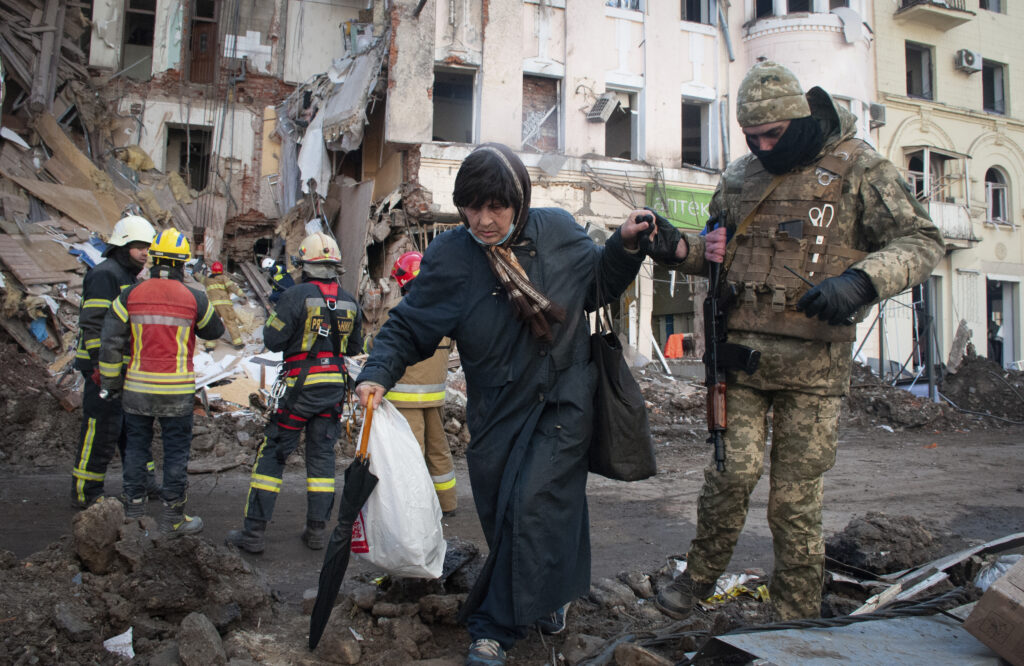
A volunteer of the Ukrainian Territorial Defense Forces assists a woman to cross the street in Kharkiv, Ukraine, Wednesday, March 16, 2022. Both Russia and Ukraine projected optimism ahead of another scheduled round of talks Wednesday, even as Moscow’s forces rained fire on Kyiv and other major cities in a bid to crush the resistance that has frustrated Kremlin hopes for a lightning victory. (AP Photo/Andrew Marienko)
President Biden and Western world leaders left their capitals to meet in Brussels for emergency talks of the G-7 nations, the European Union, and the North Atlantic Treaty Organization (NATO).
The leaders met March 24 in closed door session to discuss next moves and scramble to upkeep a posture of unity against Russia over its war in Ukraine, now in its second month.
“We are united in our resolve to counter Russia’s attempts to destroy the foundations of international security and stability,” said a joint statement of NATO leaders.
They pledged a new round of sanctions, humanitarian aid, and more military giveaways to Ukraine. Responding to what they say is increased Russian aggression, the military alliance is boosting air and naval power and positioning 40,000 more troops in NATO countries bordering Ukraine.
Conflict rages around the globe
Although NATO called it a defensive move, some observers see the military buildup as a potential provocation of Russia that increases the risk of world war.
“Neither the leadership of the U.S., NATO, or Russia have any desire to spark a world war,” said Phyllis Bennis of the Institute for Policy Studies.
“However, wars take on a life of their own and they can escalate in ways that the people who started them have no intention.”
In this case, the danger of escalation of a direct exchange between America and Russia is especially serious as together they hold more than 90 percent of the world’s nuclear weapons.
Mr. Putin has warned Russia could deploy tactical nuclear weapons, which Ms. Bennis said is very dangerous talk.
“There is nothing tactical about any nuclear weapon,” she added.
As the summits convened, hostilities flared up in Asia. North Korea test fired a massive intercontinental ballistic missile. The action provoked the ire of regional neighbors, Japan and South Korea as well as longtime foe America.
South Korea’s military responded by conducting its own missile tests from land vehicles, a ship, and aircraft to demonstrate the capabilities of the country’s anti-missile defense system.
North Korea tested a variety of new missiles, including a purported hypersonic weapon and its first launch since 2017 of an intermediate range missile with a potential of reaching Guam, a key U.S. military hub in the Pacific, said Associated Press.
The growing hostility comes at a time of intensifying anger among the nations, and amid the fall of America.
Many countries are in upheaval, either engaging in civil war or preparing for wars against an external foe. Whatever the case war stays on the horizon, and the dreaded war to end all wars also known as Armageddon continues to come into view.
President Biden and Western world leaders left their capitals to meet in Brussels for emergency talks of the G-7 nations, the European Union, and the North Atlantic Treaty Organization (NATO).
The leaders met March 24 in closed door session to discuss next moves and scramble to upkeep a posture of unity against Russia over its war in Ukraine, now in its second month.
“We are united in our resolve to counter Russia’s attempts to destroy the foundations of international security and stability,” said a joint statement of NATO leaders.
They pledged a new round of sanctions, humanitarian aid, and more military giveaways to Ukraine. Responding to what they say is increased Russian aggression, the military alliance is boosting air and naval power and positioning 40,000 more troops in NATO countries bordering Ukraine.
Conflict rages around the globe
Although NATO called it a defensive move, some observers see the military buildup as a potential provocation of Russia that increases the risk of world war.
“Neither the leadership of the U.S., NATO, or Russia have any desire to spark a world war,” said Phyllis Bennis of the Institute for Policy Studies.
“However, wars take on a life of their own and they can escalate in ways that the people who started them have no intention.”
In this case, the danger of escalation of a direct exchange between America and Russia is especially serious as together they hold more than 90 percent of the world’s nuclear weapons.
Mr. Putin has warned Russia could deploy tactical nuclear weapons, which Ms. Bennis said is very dangerous talk.
“There is nothing tactical about any nuclear weapon,” she added.
As the summits convened, hostilities flared up in Asia. North Korea test fired a massive intercontinental ballistic missile. The action provoked the ire of regional neighbors, Japan and South Korea as well as longtime foe America.
South Korea’s military responded by conducting its own missile tests from land vehicles, a ship, and aircraft to demonstrate the capabilities of the country’s anti-missile defense system.
North Korea tested a variety of new missiles, including a purported hypersonic weapon and its first launch since 2017 of an intermediate range missile with a potential of reaching Guam, a key U.S. military hub in the Pacific, said Associated Press.
The growing hostility comes at a time of intensifying anger among the nations, and amid the fall of America.
Many countries are in upheaval, either engaging in civil war or preparing for wars against an external foe. Whatever the case war stays on the horizon, and the dreaded war to end all wars also known as Armageddon continues to come into view.
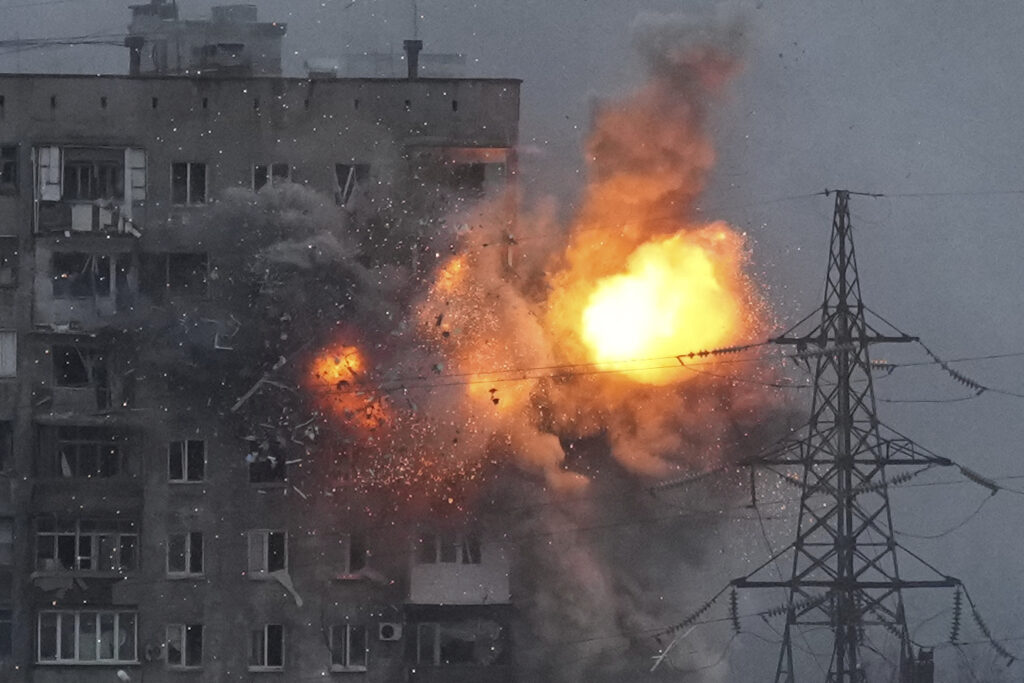
An explosion in an apartment building that came under fire from a Russian army tank in Mariupol, Ukraine, Friday, March 11, 2022. Ukraine’s military says Russian forces have captured the eastern outskirts of the besieged city of Mariupol. In a Facebook update Saturday, the military said the capture of Mariupol and Severodonetsk in the east were a priority for Russian forces. Mariupol has been under siege for over a week, with no electricity, gas or water. (AP Photo/Evgeniy Maloletka)
War and divine scripture
Although President Biden and leaders of the Western world speak against a world war, their actions aren’t a guarantee that it won’t happen. Current events must also be viewed through a scriptural lens.
During a message called “The Swan Song” in late February, the Honorable Minister Louis Farrakhan of the Nation of Islam weighed in on the turmoil in Ukraine, and how America would be drawn into a final war that would completely break her power in the world.
“Elijah Muhammad says, after the war and unto the end of the war, desolations are determined,” said the Minister in a near five-hour presentation from the Nation of Islam’s flagship Mosque Maryam in Chicago. He was speaking Feb. 27 of his teacher’s prophetic warning of America’s ultimate fall—which would begin in Europe.
Minister Farrakhan issued a warning to America: “You can’t win another war.” “Russia this will be your undoing too. See all White power has to end. The kingdom of God has to be established,” he added.
Elijah Muhammad wrote in his book “The Fall of America” that divine warnings and prophesy must be considered to understand world events.
He explained how White world rulers forced other nations to bow and pushed their borders around the earth mimicking the biblical Nebuchadnezzar in ancient times.
“The rulers of this world must be removed, and the crown must be taken off and placed upon another head, and they will rule in justice and righteousness,” Mr. Muhammad wrote. America ran the world after the end of the Cold War, the 45-year standoff between America, NATO and the former Soviet Union that started after World War II.
Under that arrangement America exerted much control on the world stage. Where nations didn’t comply, America often assassinated leaders, intervened militarily directly or used proxies to achieve her foreign policy, political and economic objectives.
The current war in Ukraine has roots in the 2014 American backed coup of the democratically elected Ukrainian government and propped up U.S.-allied regimes. And consider the 2011 NATO intervention, overthrow and killing of Muammar Gadhafi in Libya, which was instigated and driven by America. U.S. fingerprints are on the destabilization of the Horn of Africa and Somalia. The ongoing strife in Syria is another instance of U.S. determination to remove a noncompliant leader in Bashar al-Assad. The Syrian War has killed over 350,000 people in 11 years of fighting. It also brought in Russia and Turkey. The conflict in Yemen includes Iran-supported Houthis fighting an American-backed coalition force led by Saudi Arabia. Yemen is considered the worst humanitarian crisis of modern times.
There are examples of America’s big stick global posture that has left carnage and mayhem. But other powers are emerging, like China, that don’t fear America.
“That has all changed … but the United States has not come to grips with that reality,” said Wilmer Leon, political commentator in a Final Call interview. “We have moved from a unipolar to a multipolar world,” he explained.
America is falling after dominating the world as the sole superpower militarily and economically and now sees China as its main competitor for global influence.
China is the second largest economy and is developing expensive weapons systems that can rival the most advanced weapons of developed countries.
As wars and rumors of war engulf the world, America, China, and Russia are competing to develop hypersonic missiles that travel over 3,800 miles per hour—faster than sound. According to DefenseIQ, the missile is capable of carrying both conventional and nuclear war heads, which adds to its danger.
Mr. Leon explained that Chinese and Russian military strategy is primarily defensive compared to America’s strategy which is offensive.
America maintains nearly 800 military bases in more than 70 countries; China has only one overseas naval base in Djibouti in East Africa. Russia has 17 military bases over nine countries.
Crimes against humanity?
In a March 23 statement, U.S. Secretary of State Anthony Blinken, reiterating the war crime claims, charged Russian forces engaged in indiscriminate attacks and deliberately targeted civilians while destroying apartment buildings, schools, hospitals and critical infrastructure, killing and wounding thousands.
“Today, I can announce that, based on information currently available, the U.S. government assesses that members of Russia’s forces have committed war crimes in Ukraine,” declared Mr. Blinken.
Mr. Blinken acknowledged ultimately it will be up to a court of law to determine individual criminal responsibility. The U.S. will continue tracking reports of war crimes in Ukraine and share the information with allies, and international and multilateral institutions, he vowed.
Mr. Blinken’s statement referred to actions by “Russian forces,” which appears to contradict an earlier statement by President Biden personally branding Mr. Putin a war criminal.
When pressed about Mr. Putin, Beth Van Schaack, newly confirmed ambassador-at-large for the State Department’s Office of Global Criminal Justice told reporters, the evidence pointed to atrocities by Russian forces. It is for a court to determine Mr. Putin’s culpability because under international law, they are able to reach the top of the chain of command, she said. Her office leads the State Department’s efforts to collect, analyze, and document potential war crimes being committed in Ukraine.
While the Western leaders met in Brussels, Karim Khan, the chief prosecutor at the International Criminal Court (ICC)—different from the UN’s highest court—met at the Hague with a British-led group of prosecutors and justice ministers from 38 countries on Ukraine.
War and divine scripture
Although President Biden and leaders of the Western world speak against a world war, their actions aren’t a guarantee that it won’t happen. Current events must also be viewed through a scriptural lens.
During a message called “The Swan Song” in late February, the Honorable Minister Louis Farrakhan of the Nation of Islam weighed in on the turmoil in Ukraine, and how America would be drawn into a final war that would completely break her power in the world.
“Elijah Muhammad says, after the war and unto the end of the war, desolations are determined,” said the Minister in a near five-hour presentation from the Nation of Islam’s flagship Mosque Maryam in Chicago. He was speaking Feb. 27 of his teacher’s prophetic warning of America’s ultimate fall—which would begin in Europe.
Minister Farrakhan issued a warning to America: “You can’t win another war.” “Russia this will be your undoing too. See all White power has to end. The kingdom of God has to be established,” he added.
Elijah Muhammad wrote in his book “The Fall of America” that divine warnings and prophesy must be considered to understand world events.
He explained how White world rulers forced other nations to bow and pushed their borders around the earth mimicking the biblical Nebuchadnezzar in ancient times.
“The rulers of this world must be removed, and the crown must be taken off and placed upon another head, and they will rule in justice and righteousness,” Mr. Muhammad wrote. America ran the world after the end of the Cold War, the 45-year standoff between America, NATO and the former Soviet Union that started after World War II.
Under that arrangement America exerted much control on the world stage. Where nations didn’t comply, America often assassinated leaders, intervened militarily directly or used proxies to achieve her foreign policy, political and economic objectives.
The current war in Ukraine has roots in the 2014 American backed coup of the democratically elected Ukrainian government and propped up U.S.-allied regimes. And consider the 2011 NATO intervention, overthrow and killing of Muammar Gadhafi in Libya, which was instigated and driven by America. U.S. fingerprints are on the destabilization of the Horn of Africa and Somalia. The ongoing strife in Syria is another instance of U.S. determination to remove a noncompliant leader in Bashar al-Assad. The Syrian War has killed over 350,000 people in 11 years of fighting. It also brought in Russia and Turkey. The conflict in Yemen includes Iran-supported Houthis fighting an American-backed coalition force led by Saudi Arabia. Yemen is considered the worst humanitarian crisis of modern times.
There are examples of America’s big stick global posture that has left carnage and mayhem. But other powers are emerging, like China, that don’t fear America.
“That has all changed … but the United States has not come to grips with that reality,” said Wilmer Leon, political commentator in a Final Call interview. “We have moved from a unipolar to a multipolar world,” he explained.
America is falling after dominating the world as the sole superpower militarily and economically and now sees China as its main competitor for global influence.
China is the second largest economy and is developing expensive weapons systems that can rival the most advanced weapons of developed countries.
As wars and rumors of war engulf the world, America, China, and Russia are competing to develop hypersonic missiles that travel over 3,800 miles per hour—faster than sound. According to DefenseIQ, the missile is capable of carrying both conventional and nuclear war heads, which adds to its danger.
Mr. Leon explained that Chinese and Russian military strategy is primarily defensive compared to America’s strategy which is offensive.
America maintains nearly 800 military bases in more than 70 countries; China has only one overseas naval base in Djibouti in East Africa. Russia has 17 military bases over nine countries.
Crimes against humanity?
In a March 23 statement, U.S. Secretary of State Anthony Blinken, reiterating the war crime claims, charged Russian forces engaged in indiscriminate attacks and deliberately targeted civilians while destroying apartment buildings, schools, hospitals and critical infrastructure, killing and wounding thousands.
“Today, I can announce that, based on information currently available, the U.S. government assesses that members of Russia’s forces have committed war crimes in Ukraine,” declared Mr. Blinken.
Mr. Blinken acknowledged ultimately it will be up to a court of law to determine individual criminal responsibility. The U.S. will continue tracking reports of war crimes in Ukraine and share the information with allies, and international and multilateral institutions, he vowed.
Mr. Blinken’s statement referred to actions by “Russian forces,” which appears to contradict an earlier statement by President Biden personally branding Mr. Putin a war criminal.
When pressed about Mr. Putin, Beth Van Schaack, newly confirmed ambassador-at-large for the State Department’s Office of Global Criminal Justice told reporters, the evidence pointed to atrocities by Russian forces. It is for a court to determine Mr. Putin’s culpability because under international law, they are able to reach the top of the chain of command, she said. Her office leads the State Department’s efforts to collect, analyze, and document potential war crimes being committed in Ukraine.
While the Western leaders met in Brussels, Karim Khan, the chief prosecutor at the International Criminal Court (ICC)—different from the UN’s highest court—met at the Hague with a British-led group of prosecutors and justice ministers from 38 countries on Ukraine.
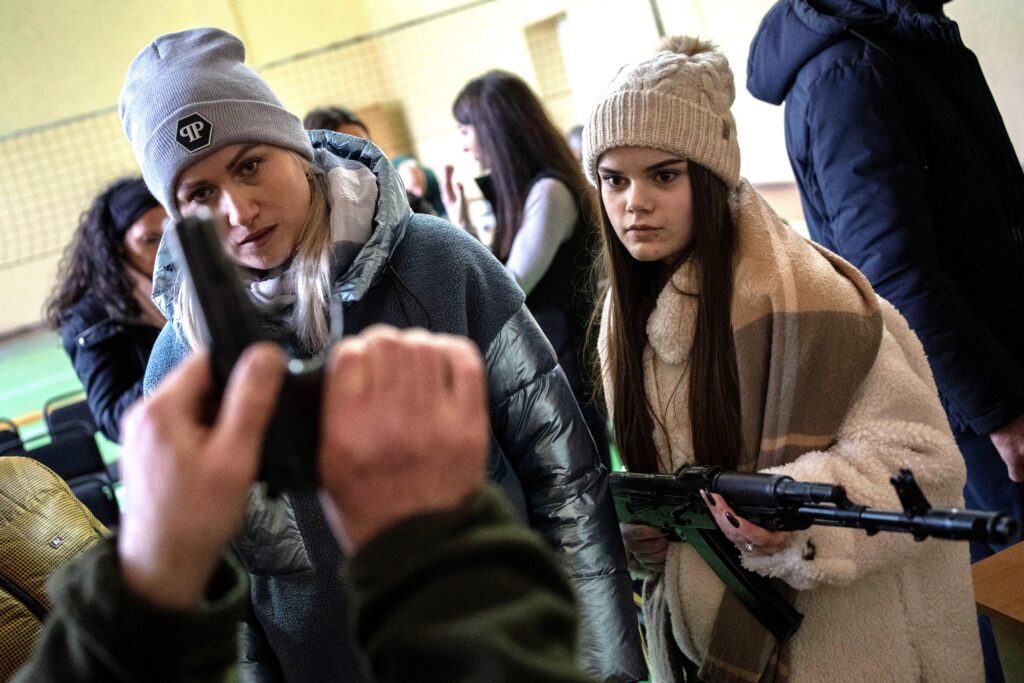
Mr. Khan began a formal inquiry into war crimes and crimes against humanity several days after the war started in late February. The investigation will also include possible atrocities on both sides and events going back to Russia’s annexation of Crimea from eastern Ukraine in 2014.
Neither Russia, Ukraine, nor the U.S. are members of the ICC and not under its jurisdiction, which poses a difficulty in addressing responsibility for war crimes in Ukraine. America has had rocky relations with the ICC and has blocked efforts by the court to investigate alleged U.S. war crimes related to its Afghanistan war.
(Final Call staff contributed to this report.)
